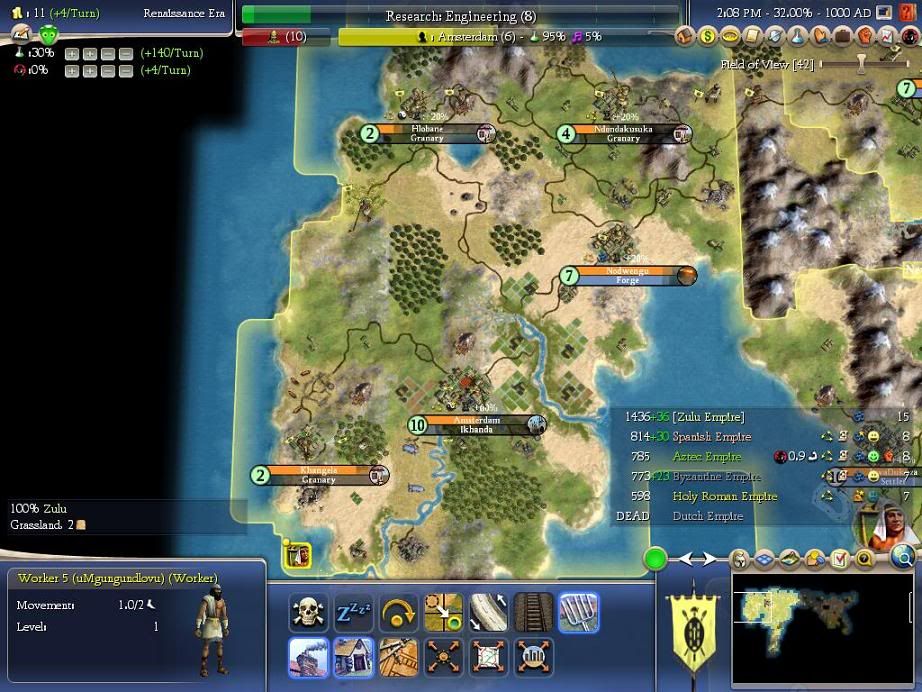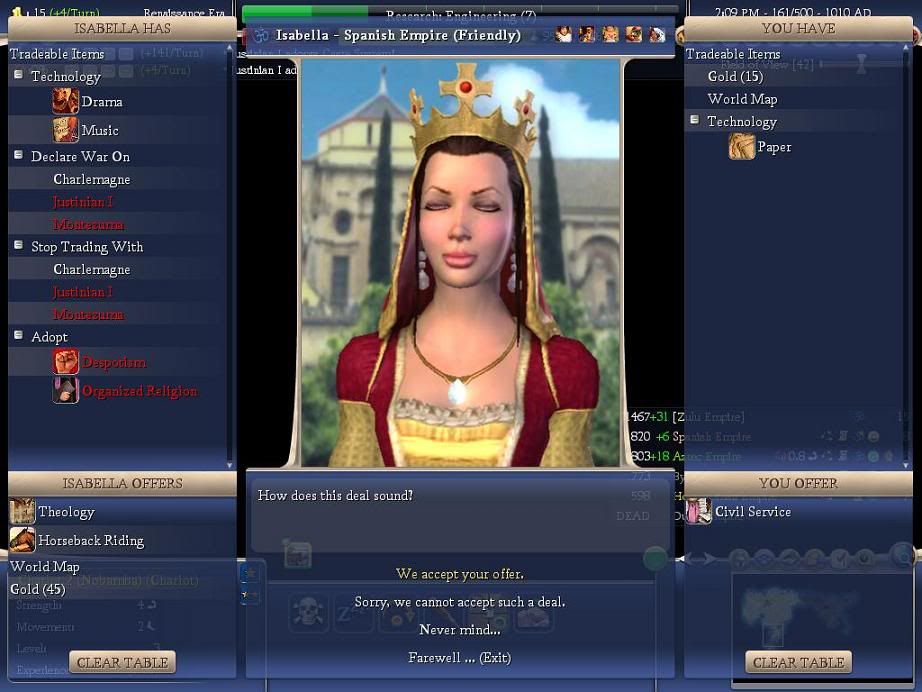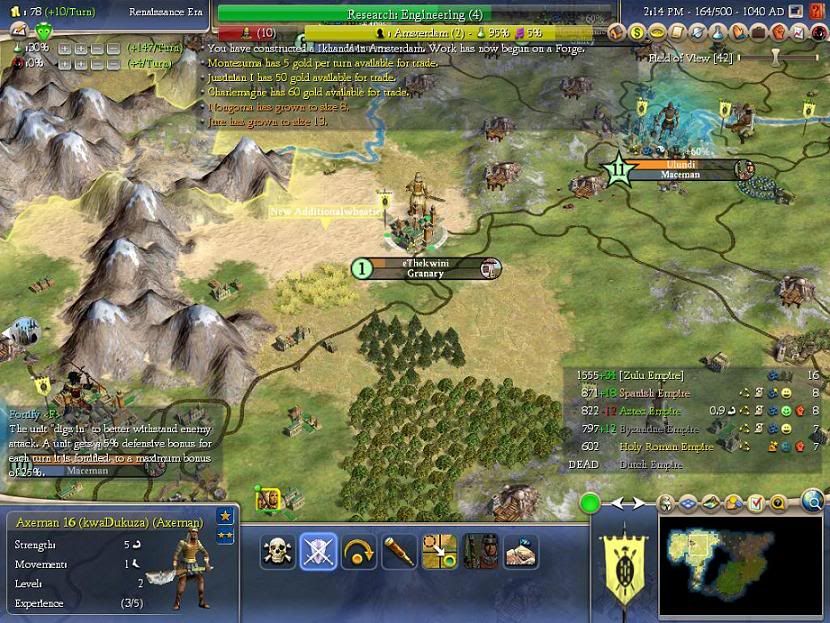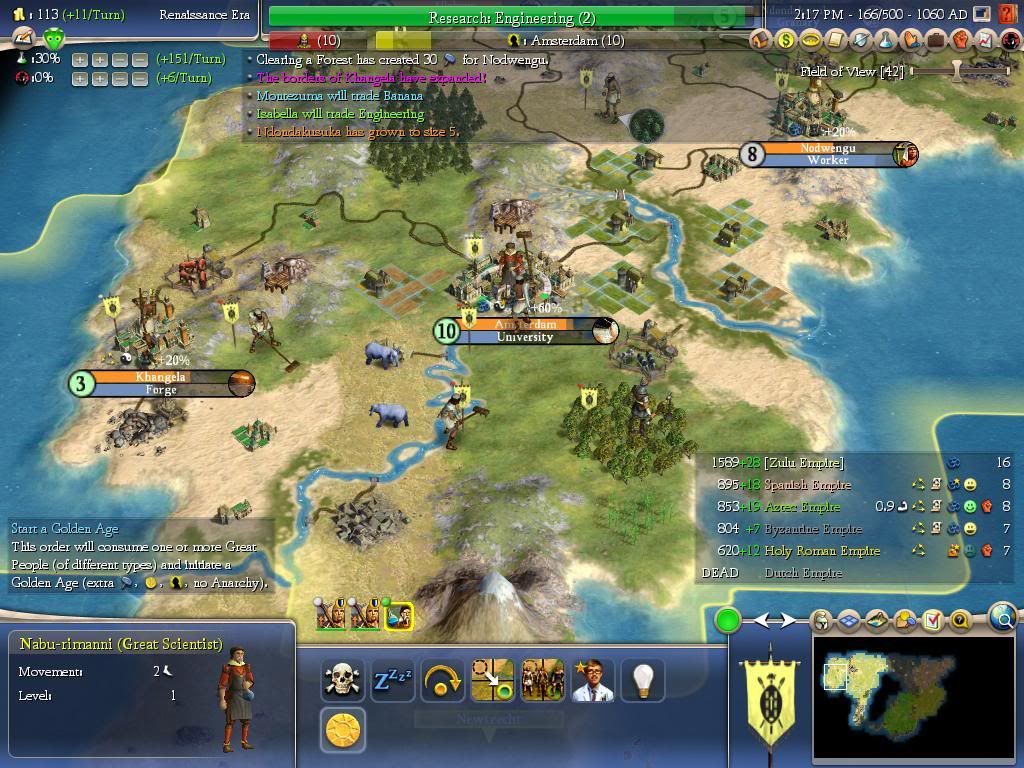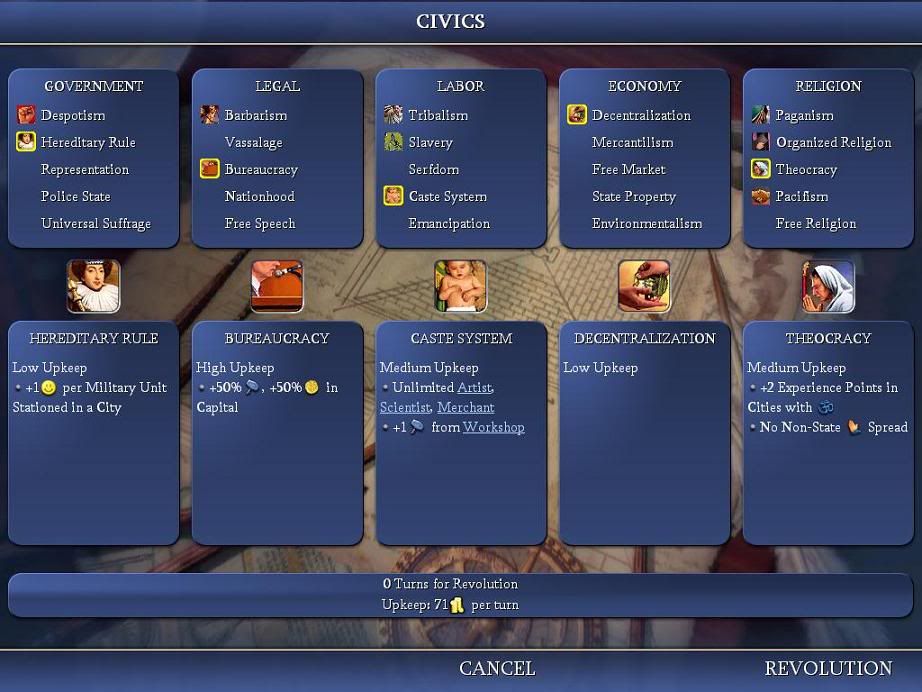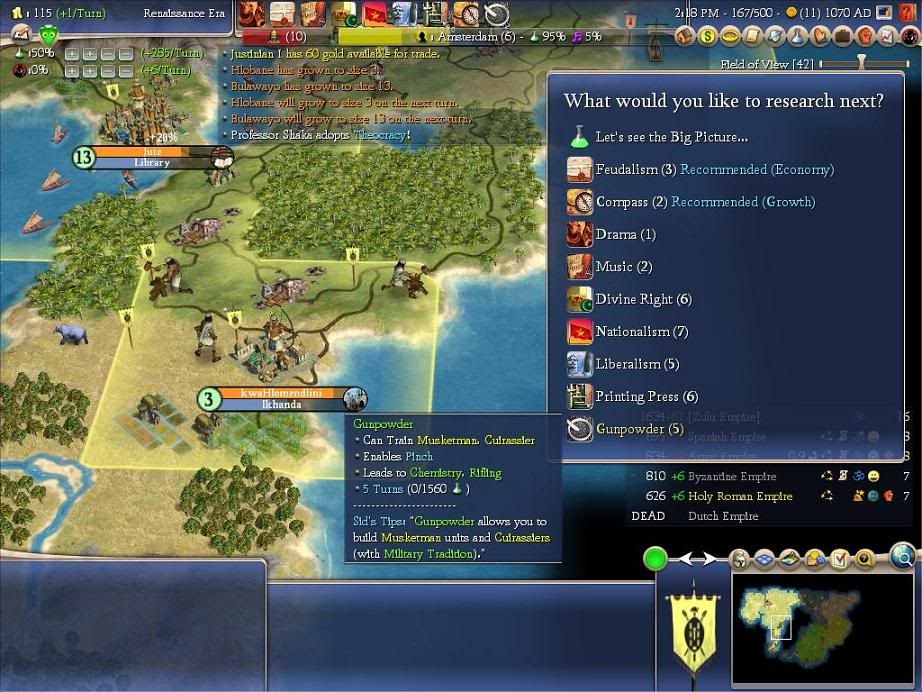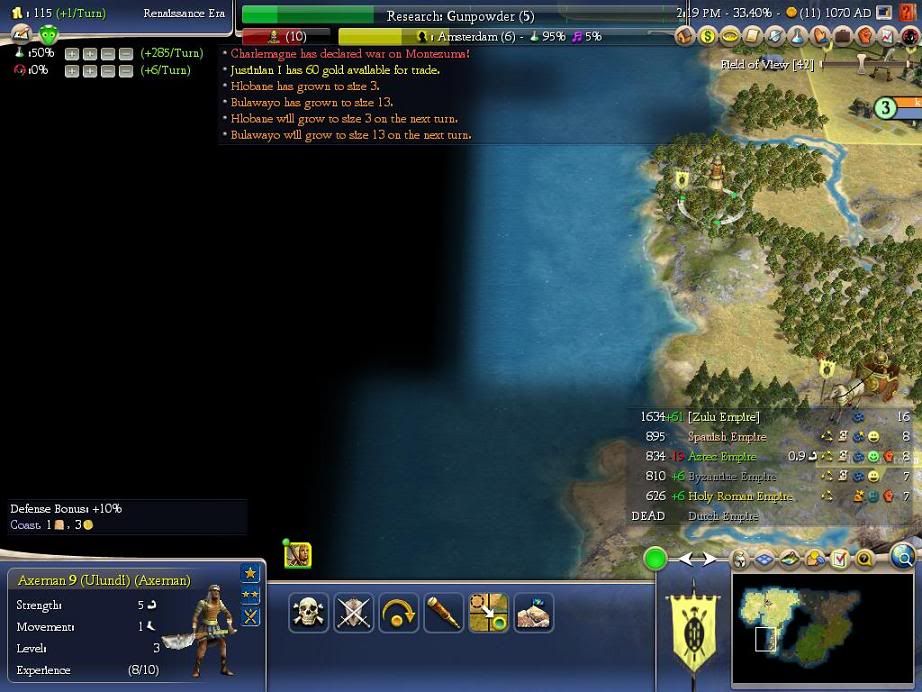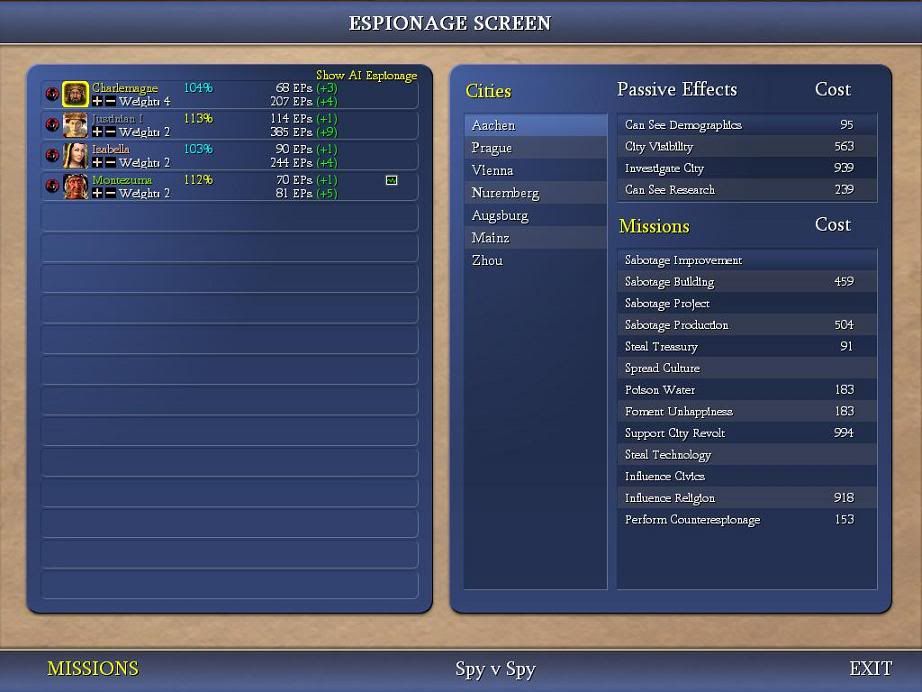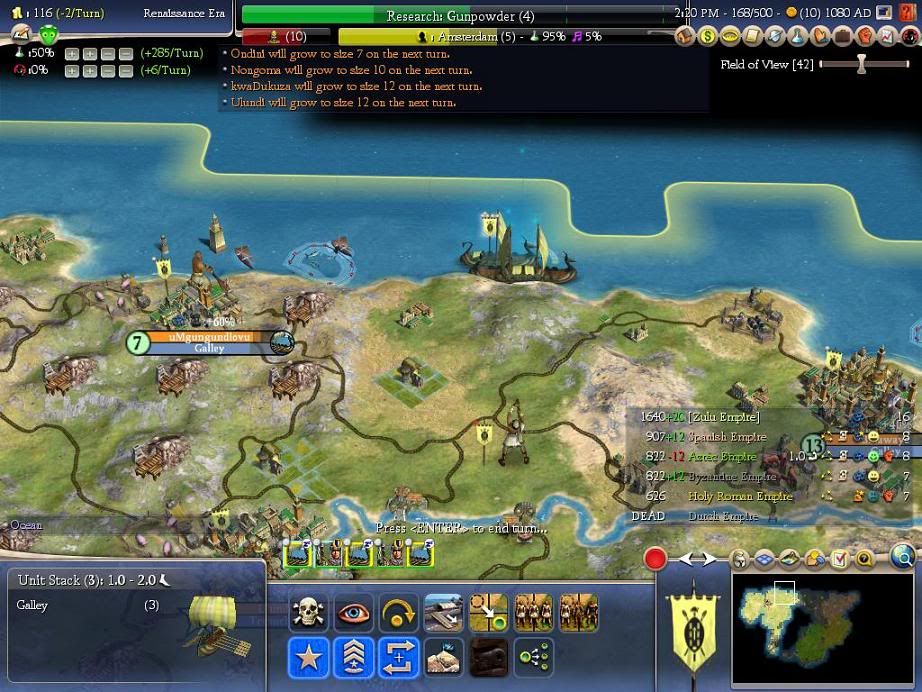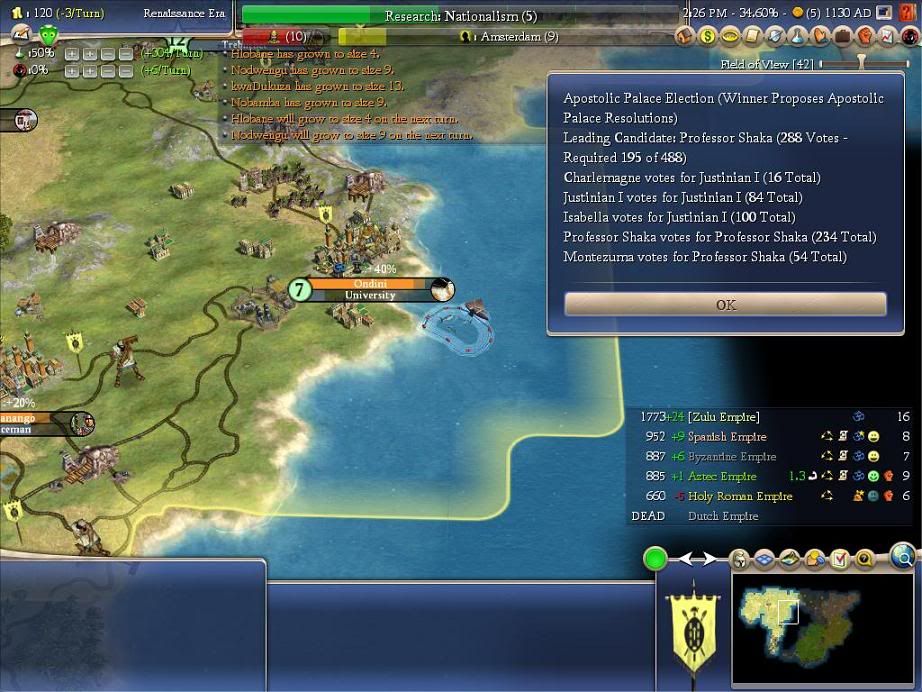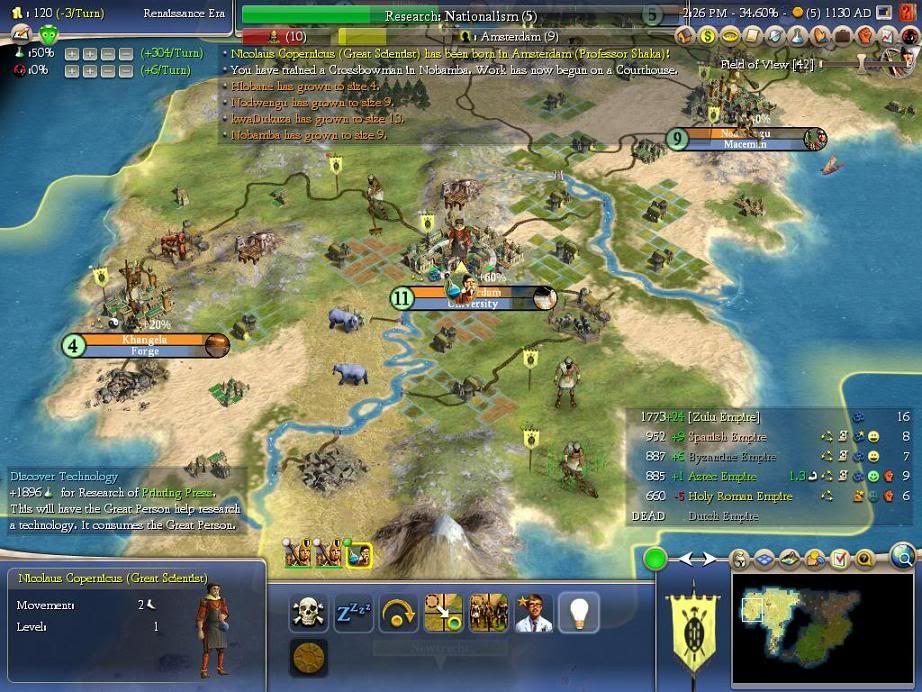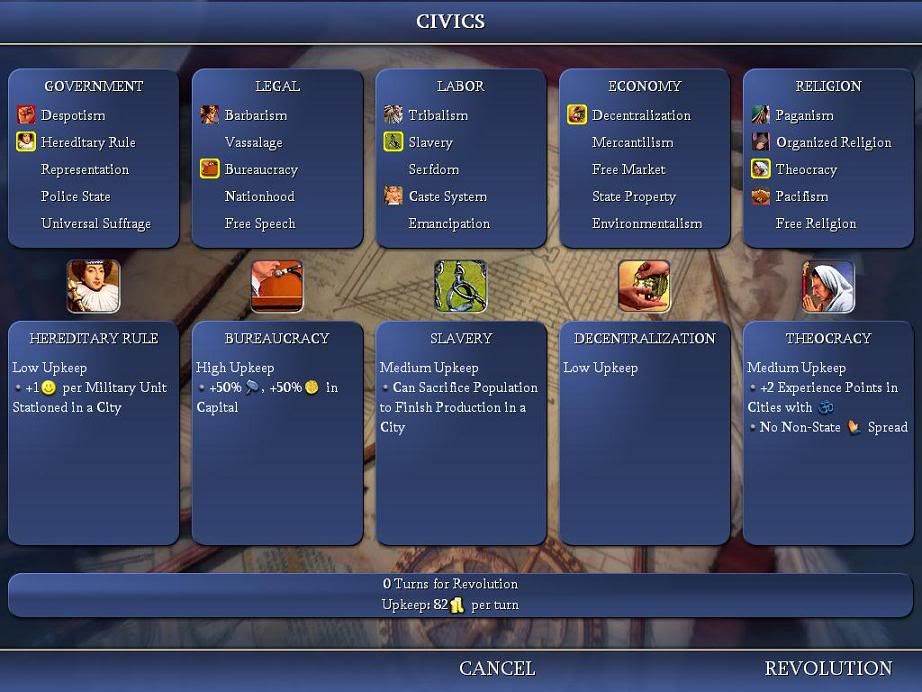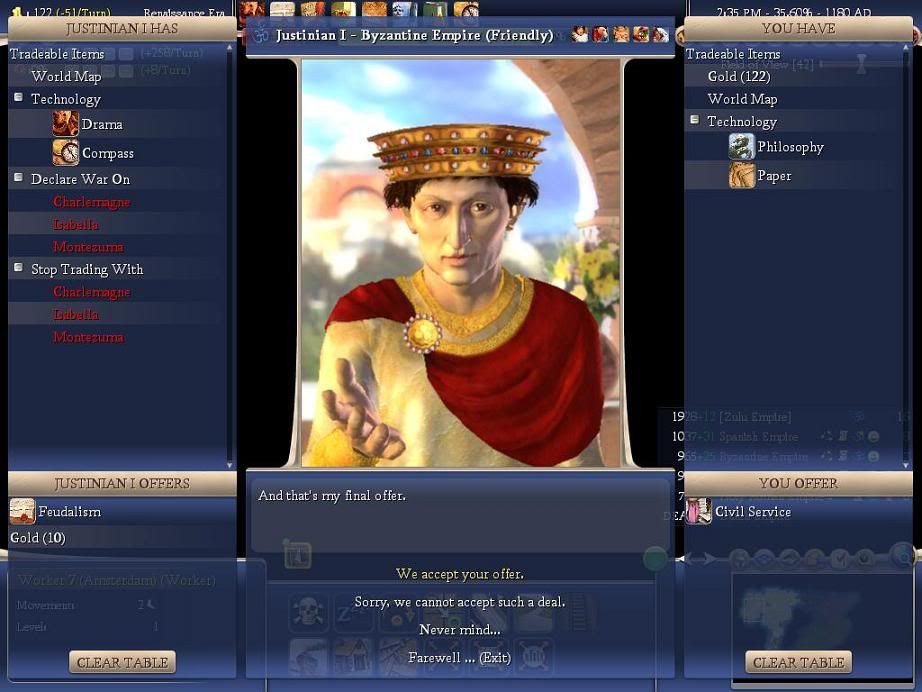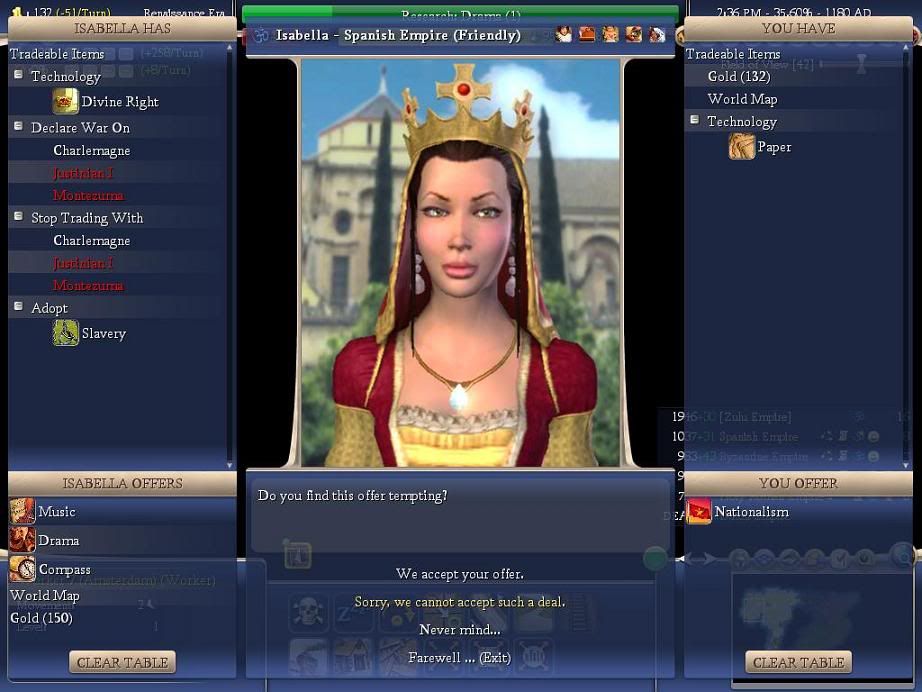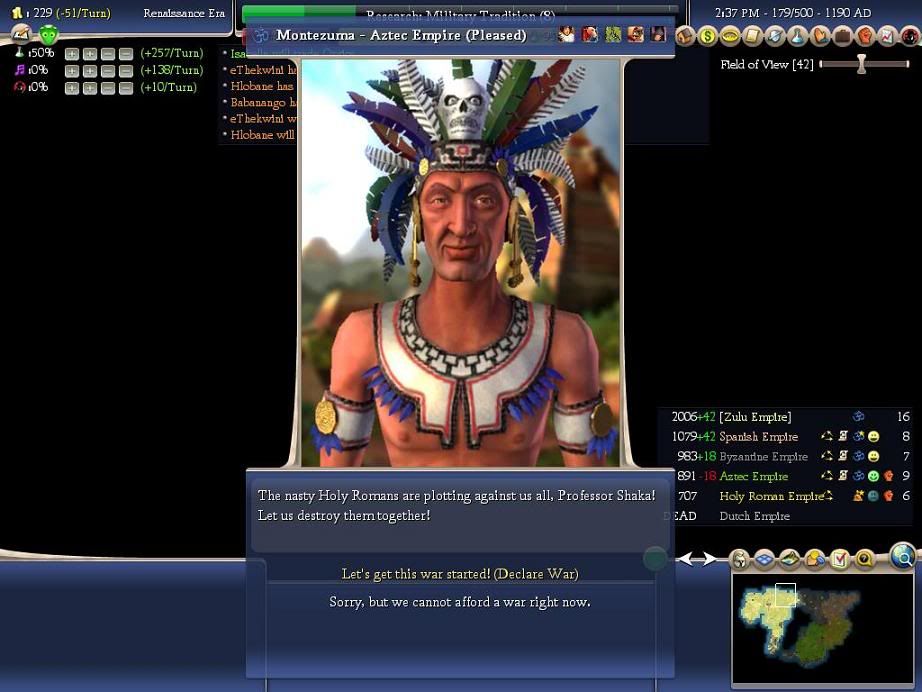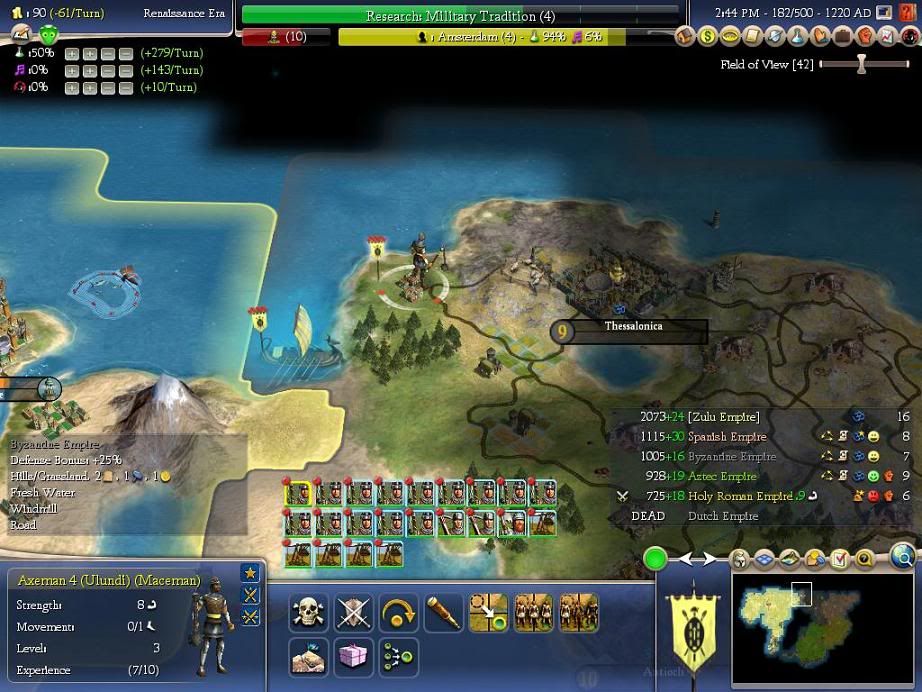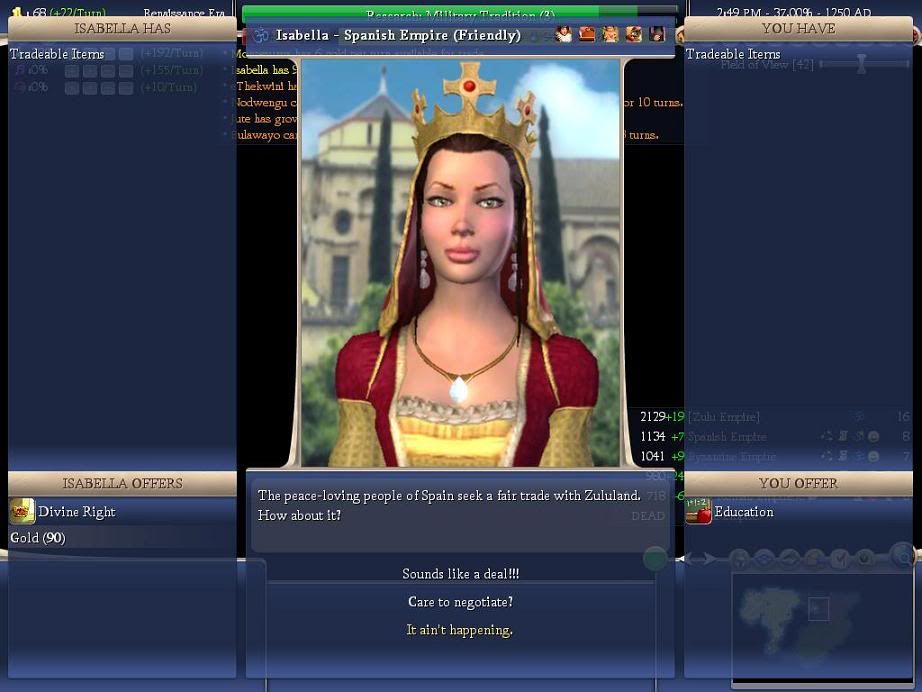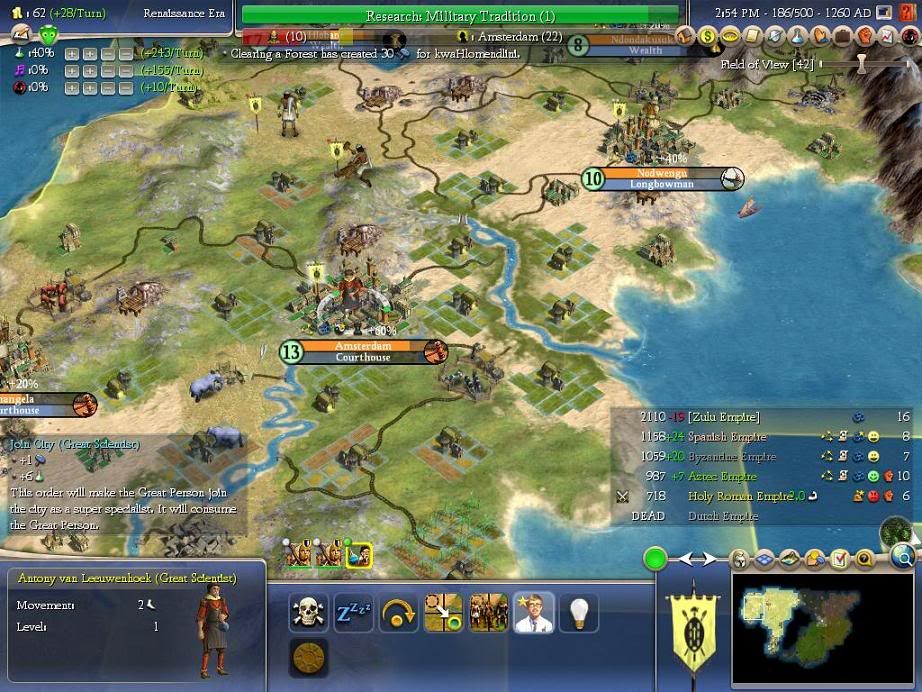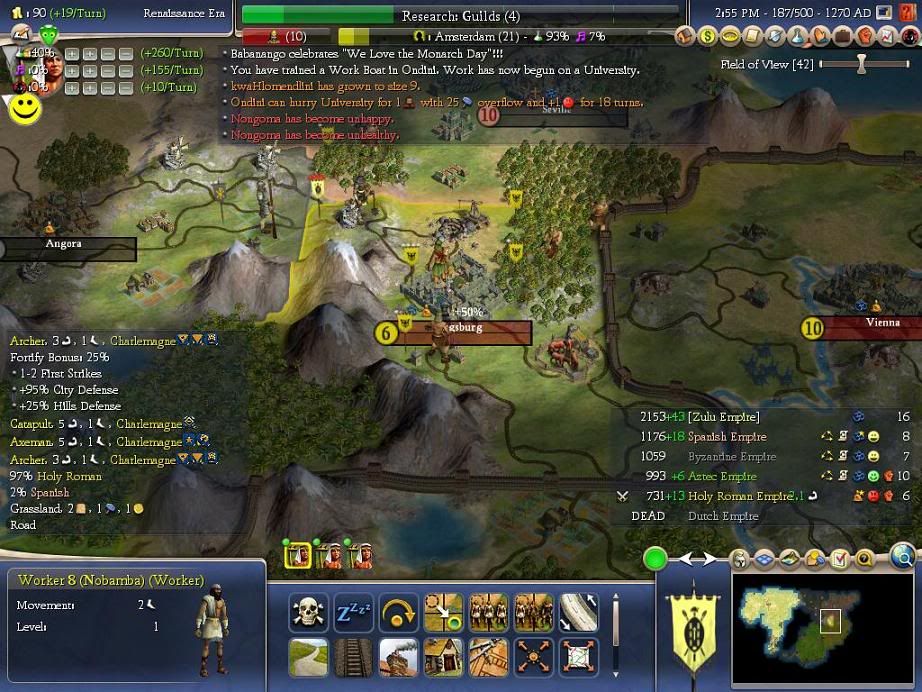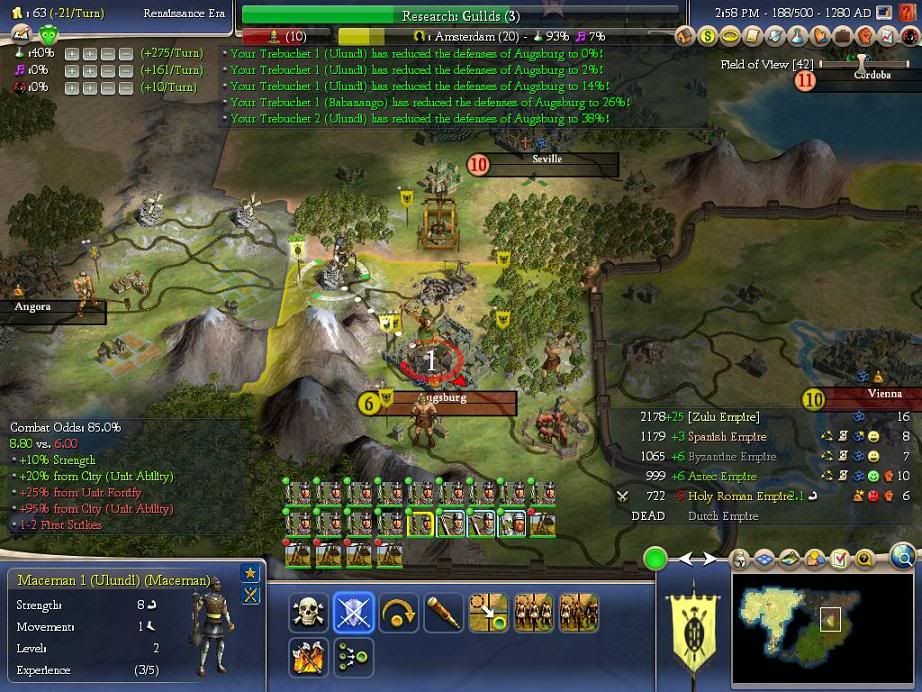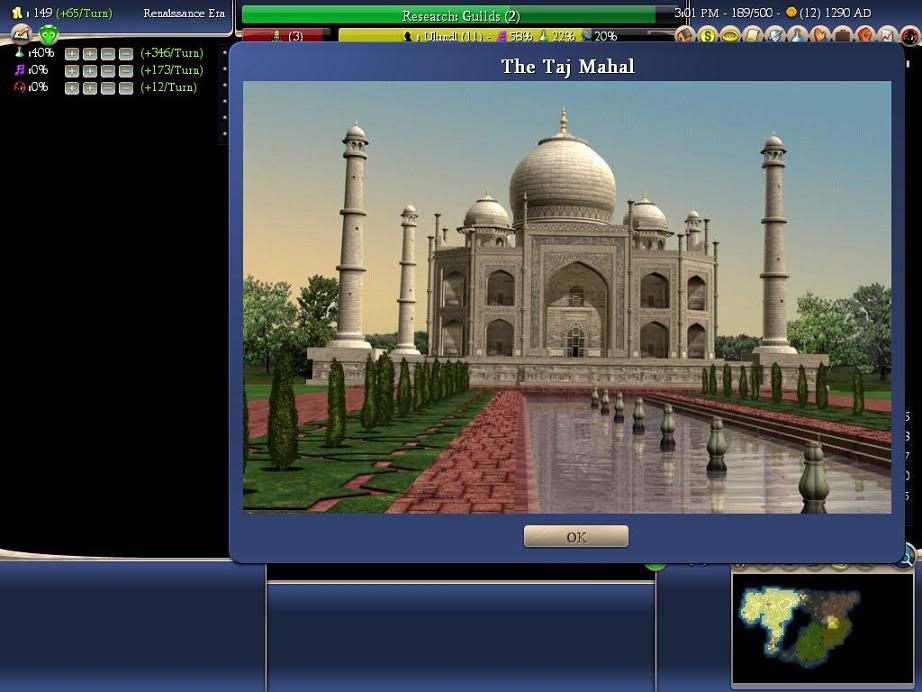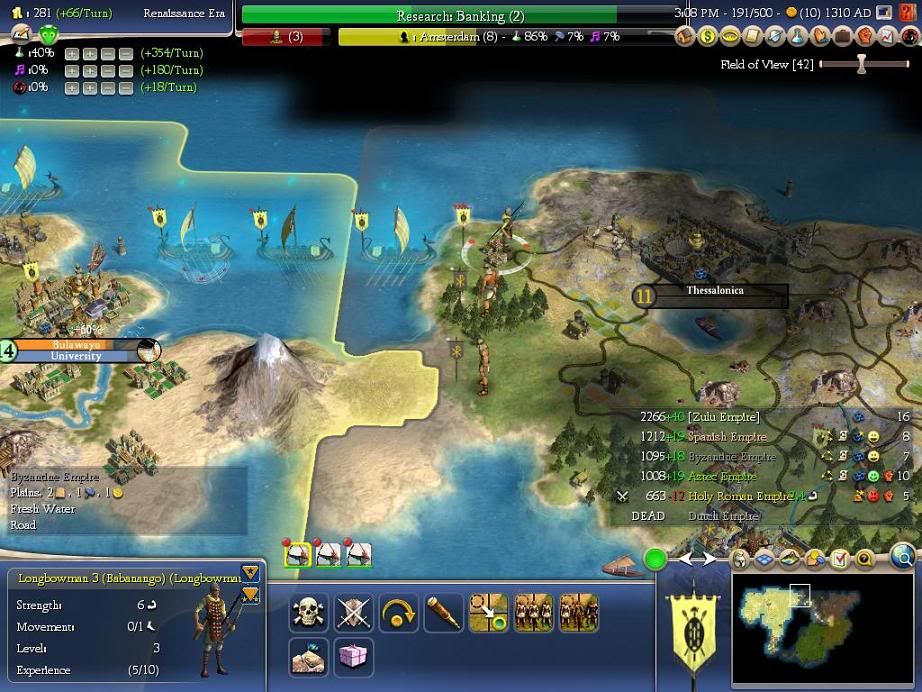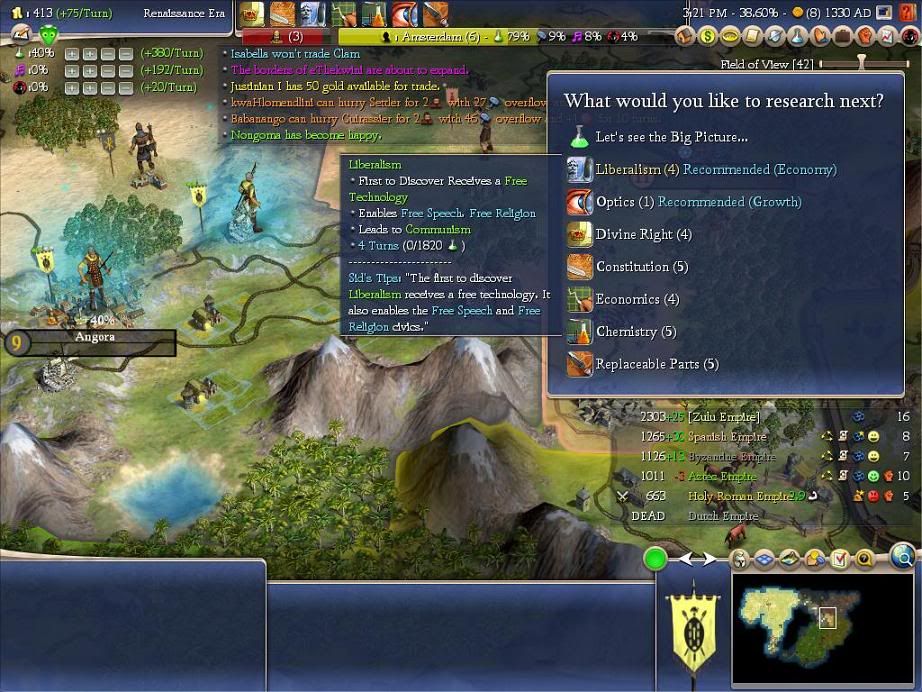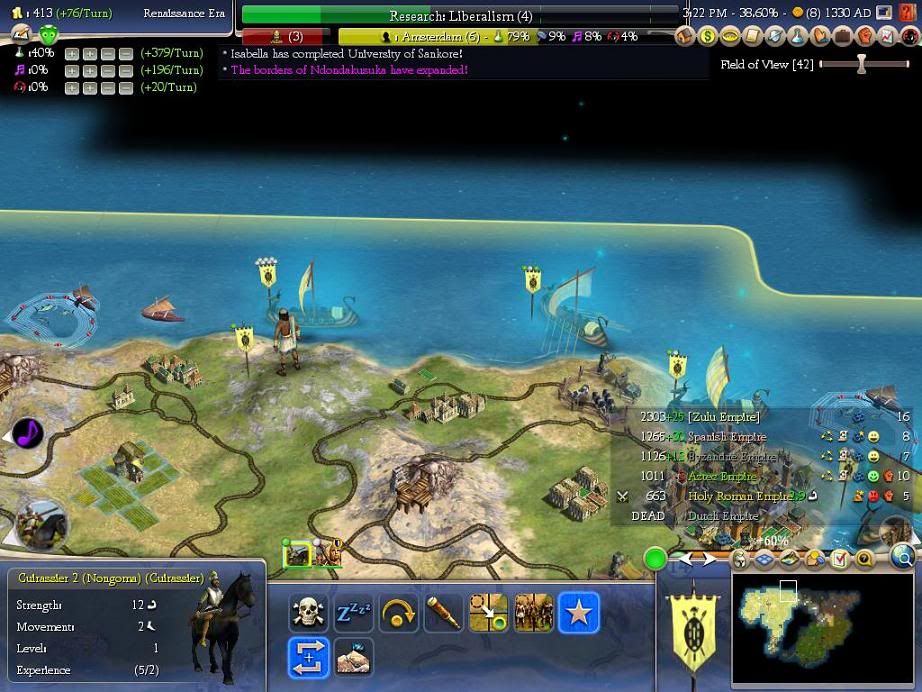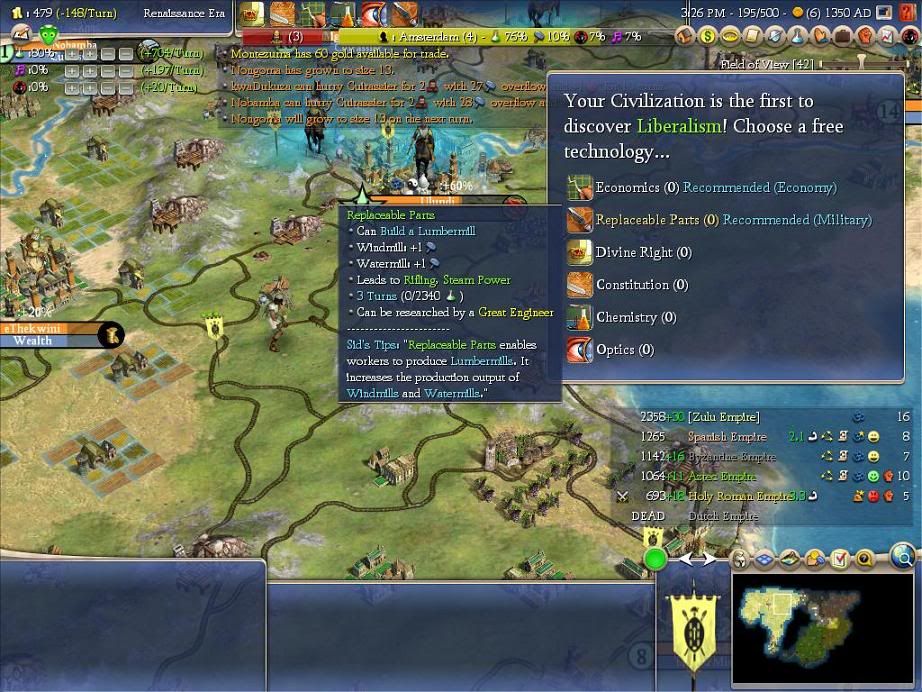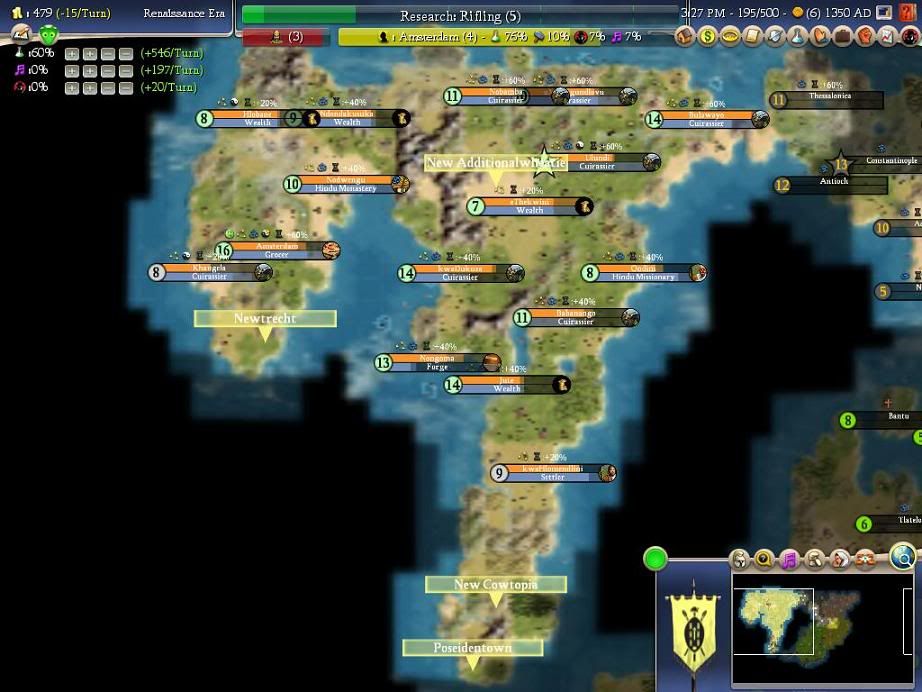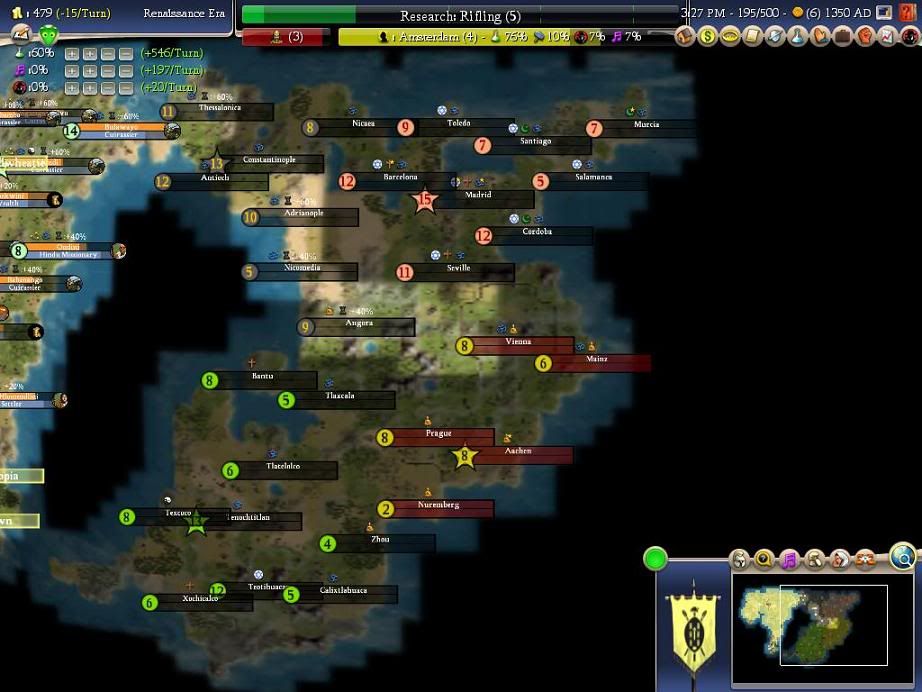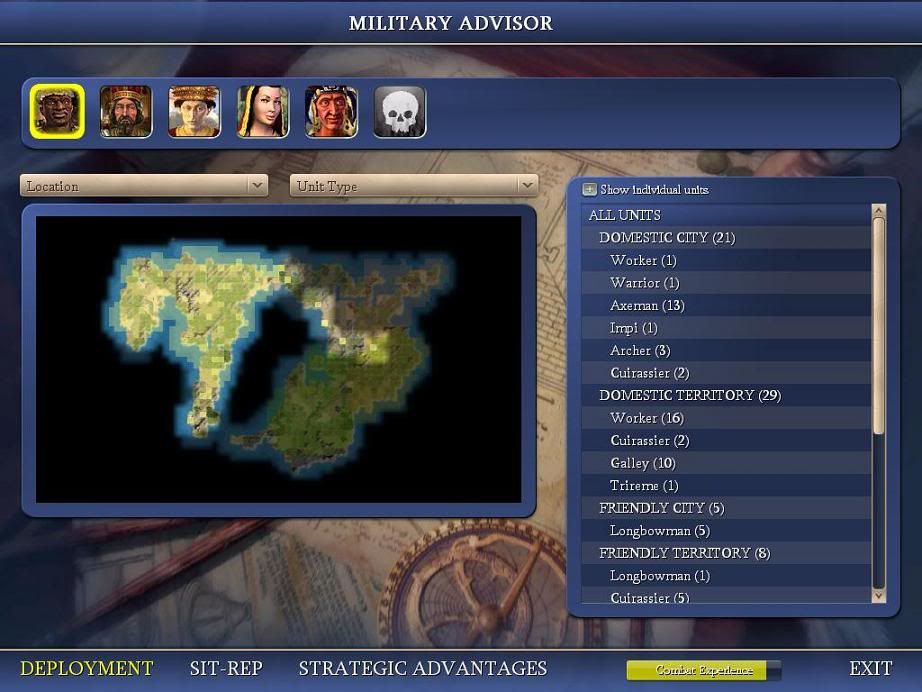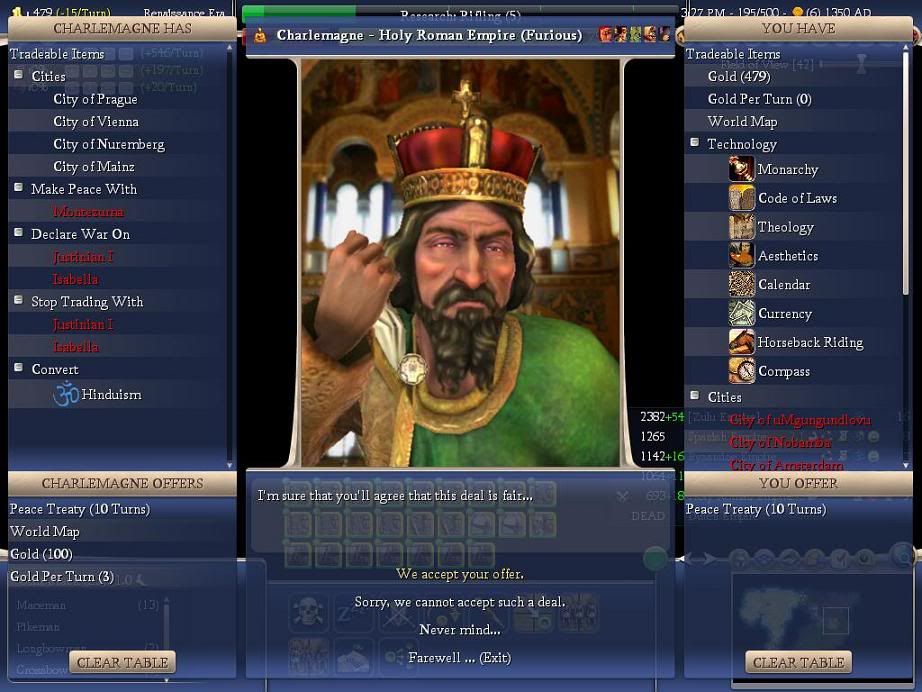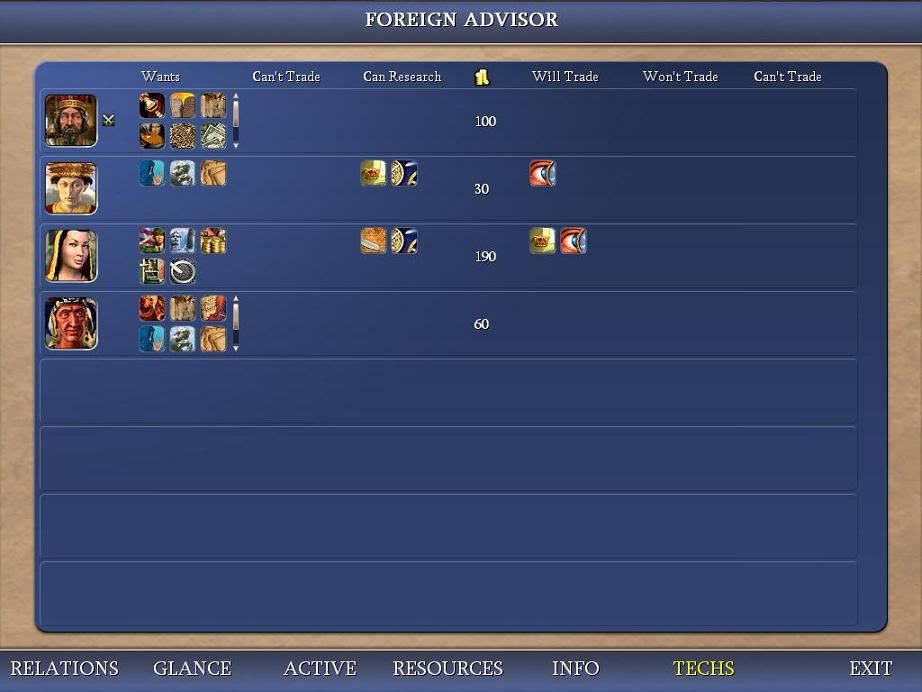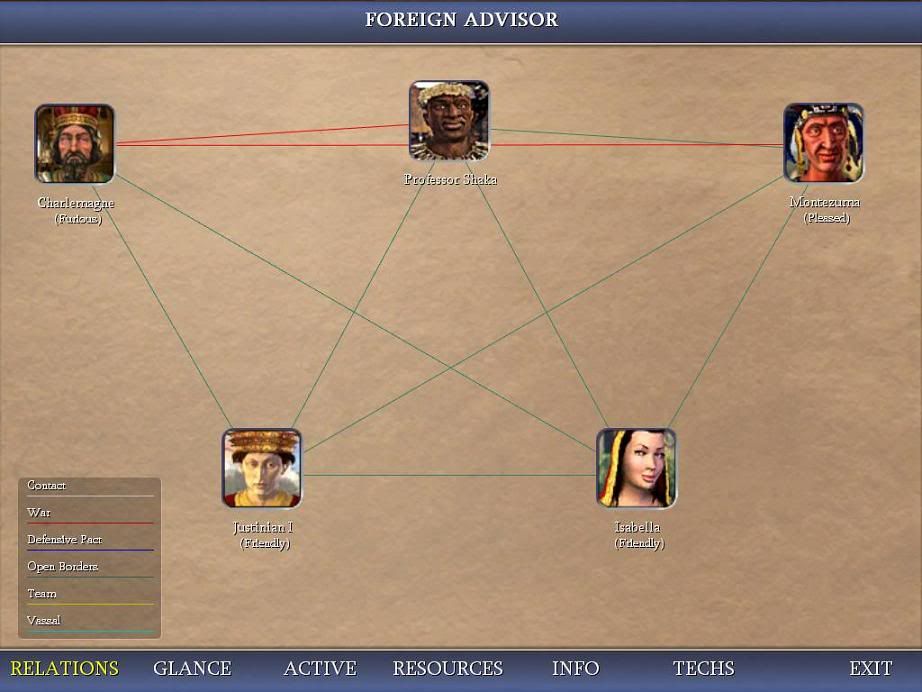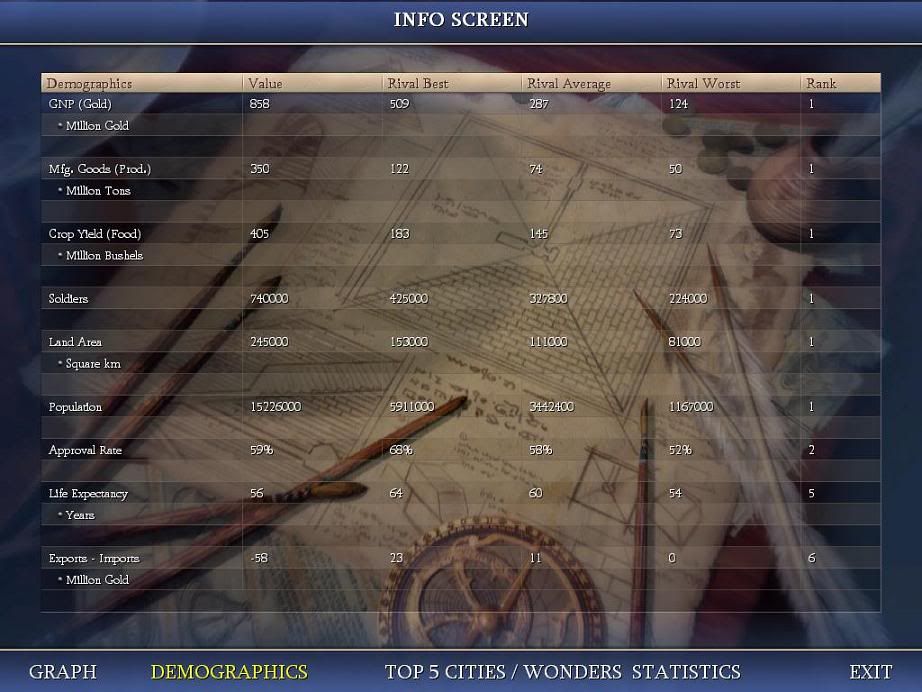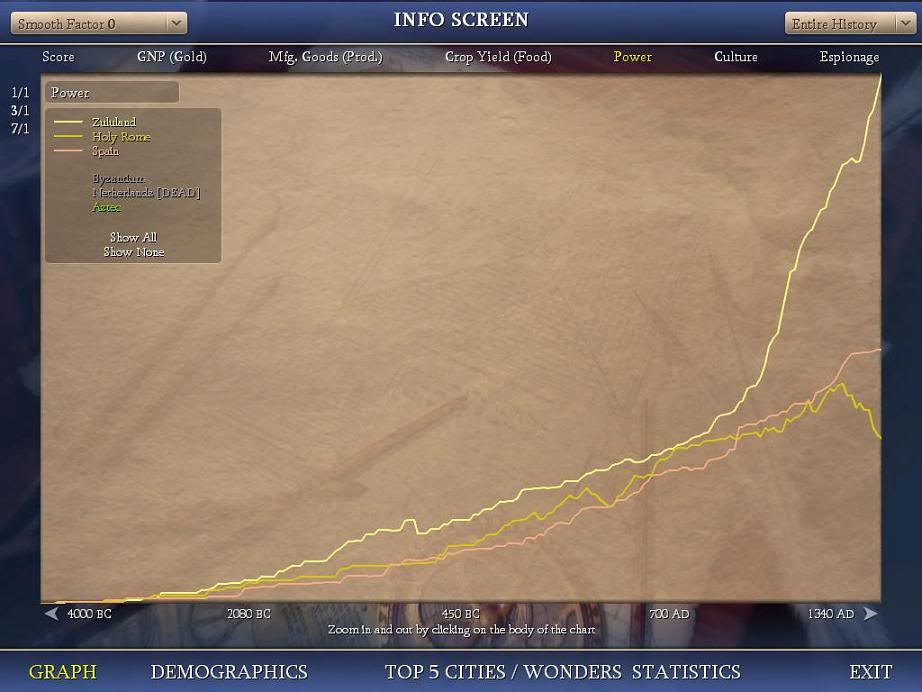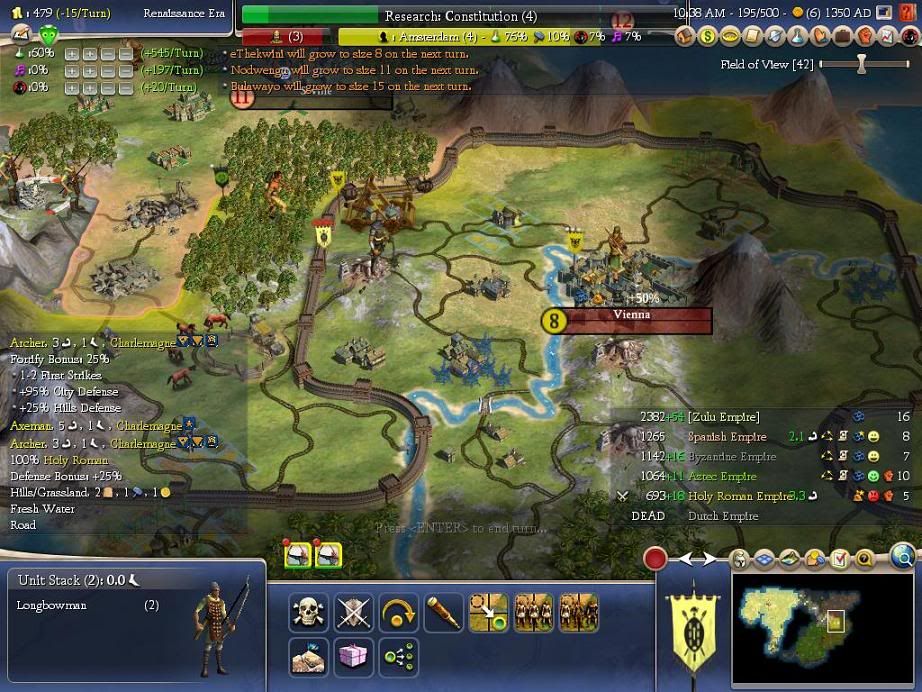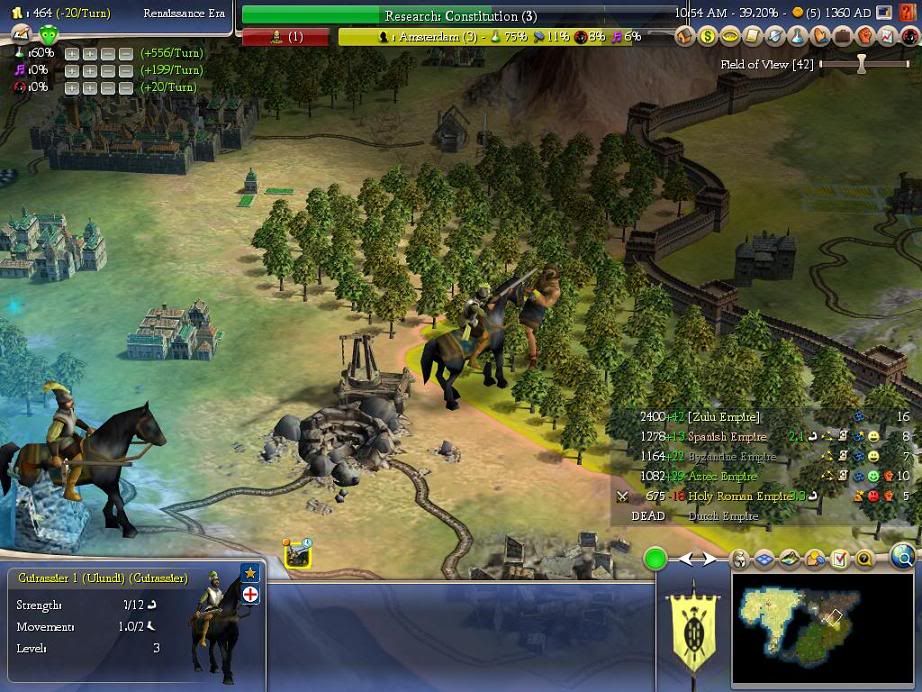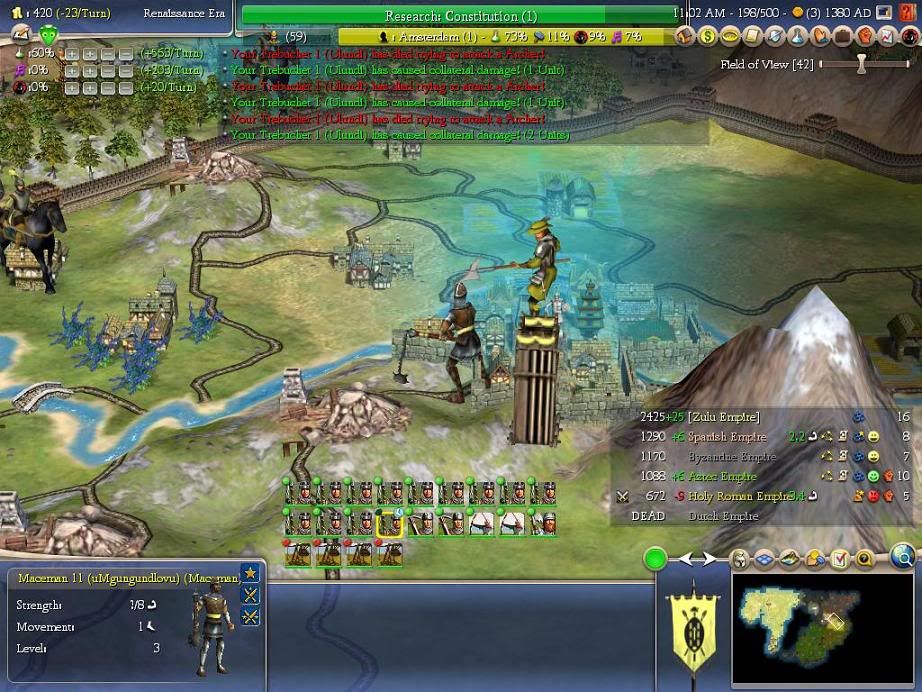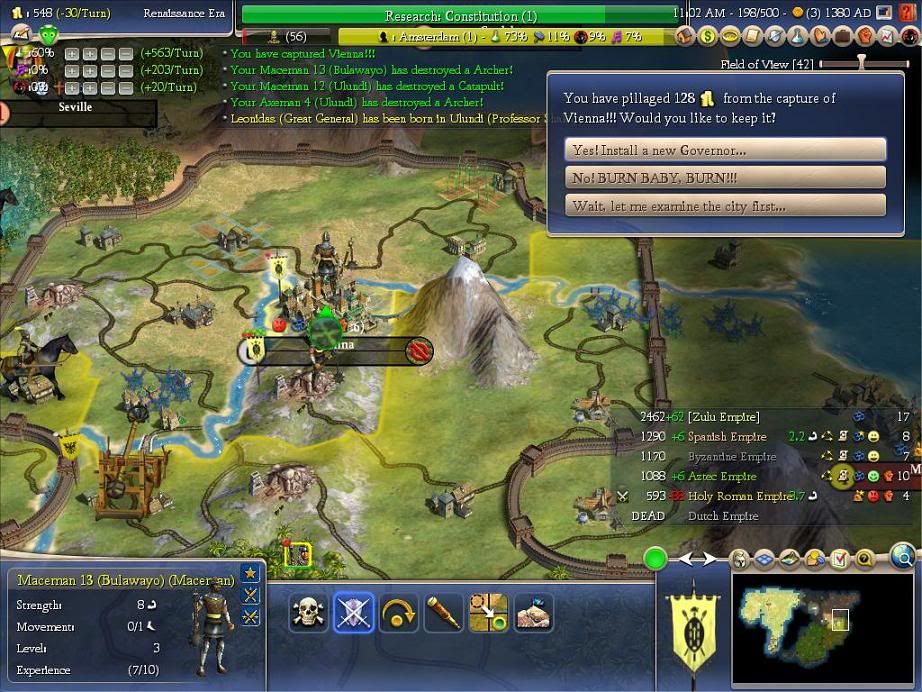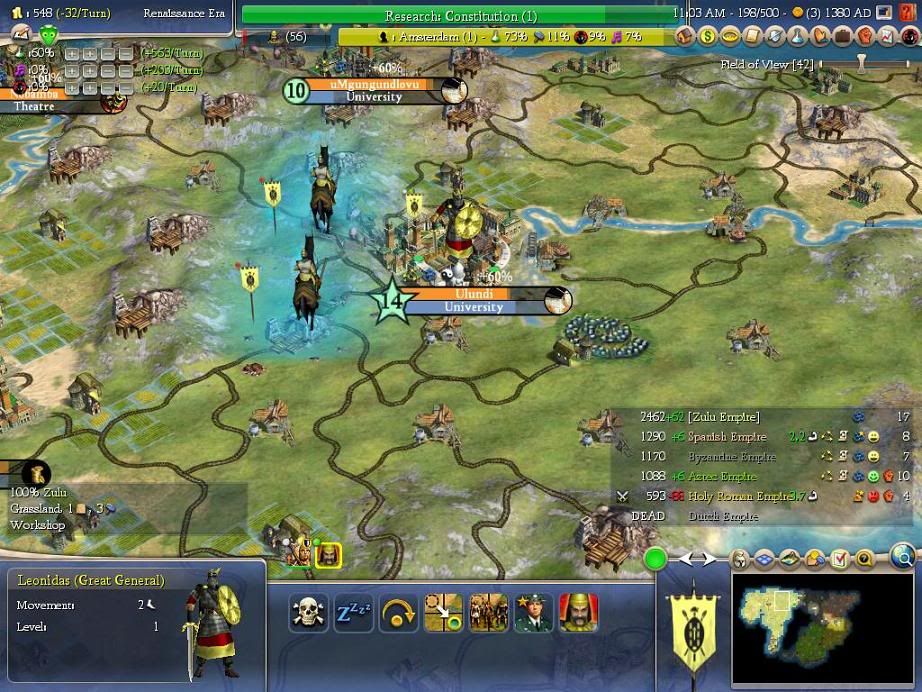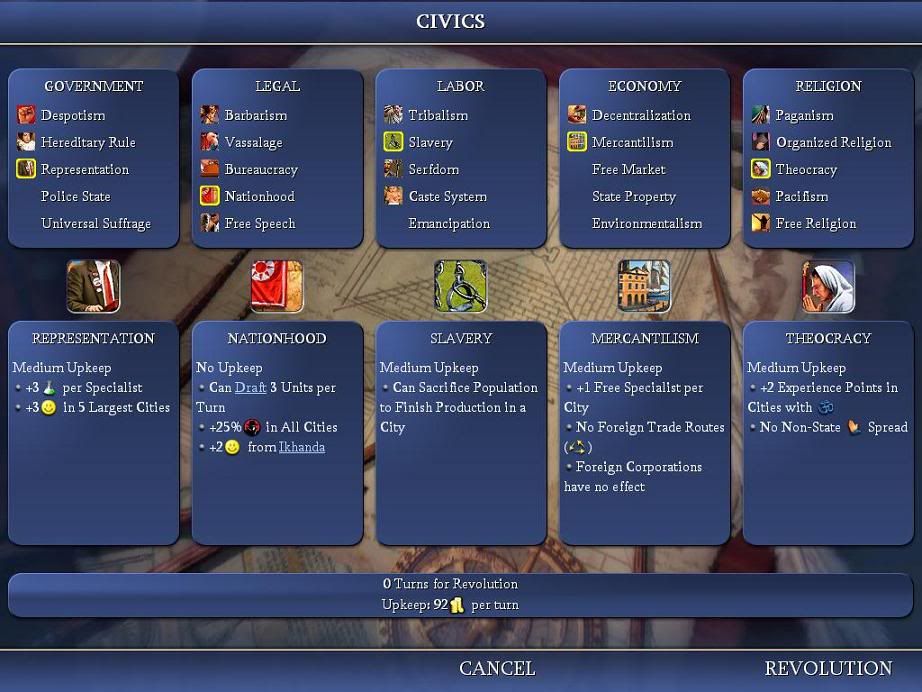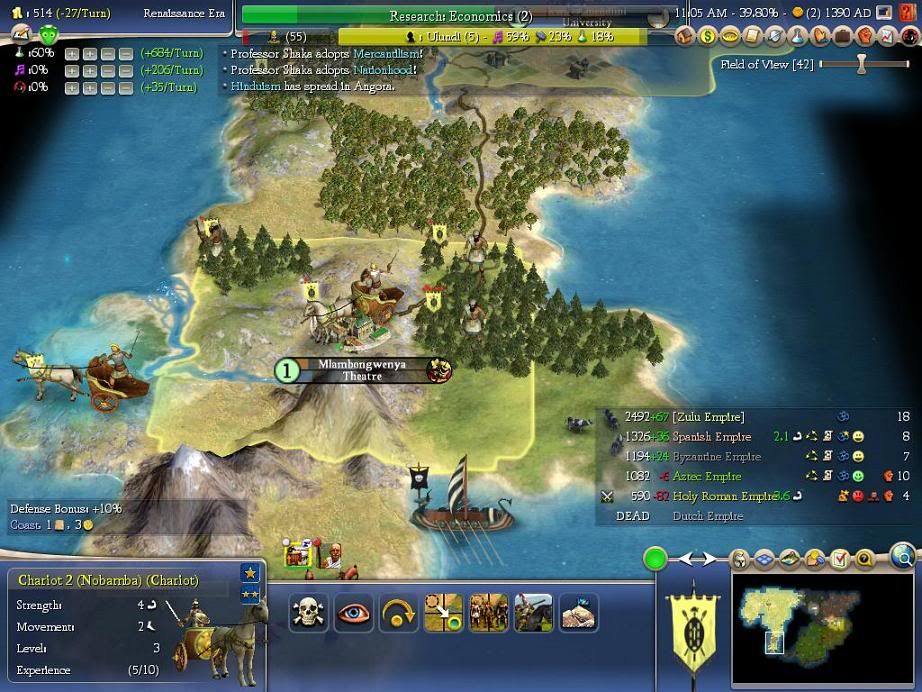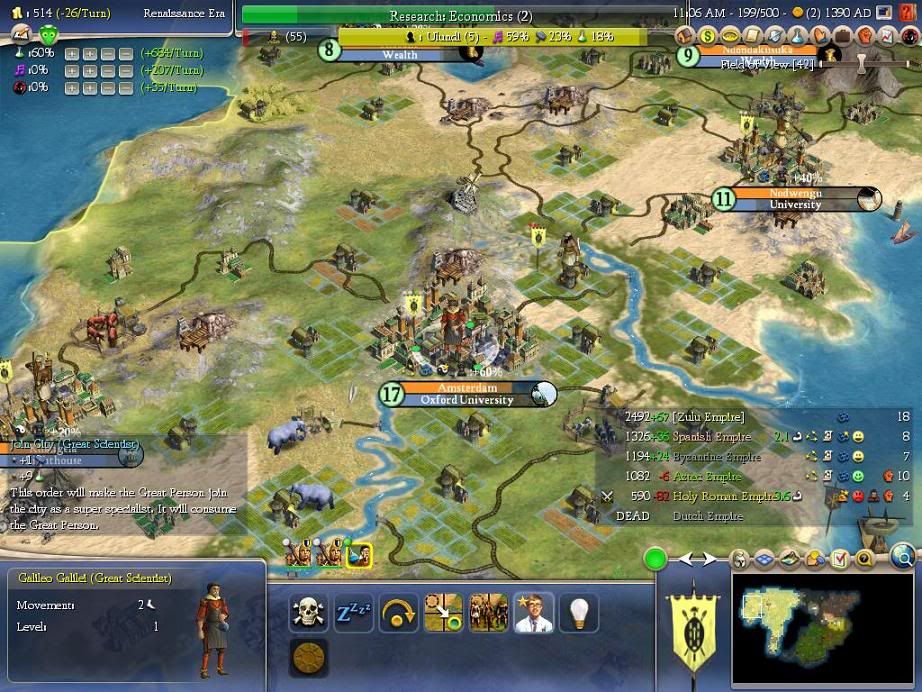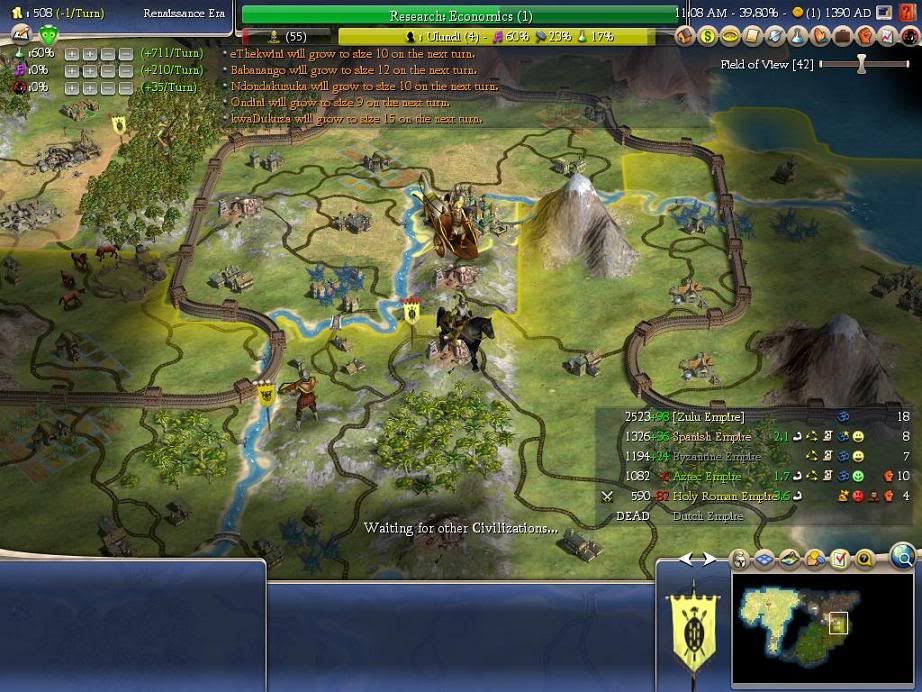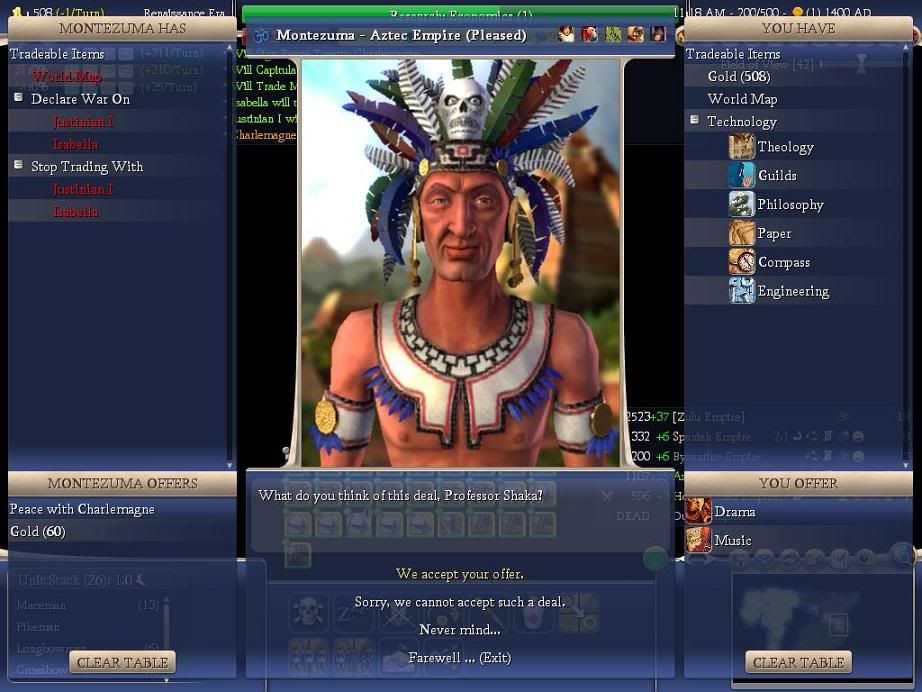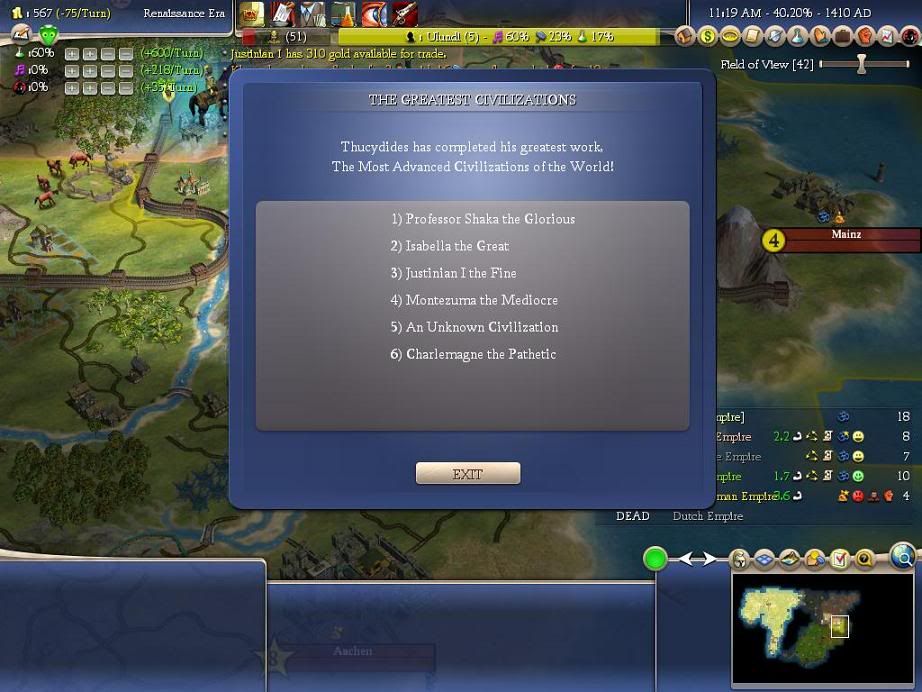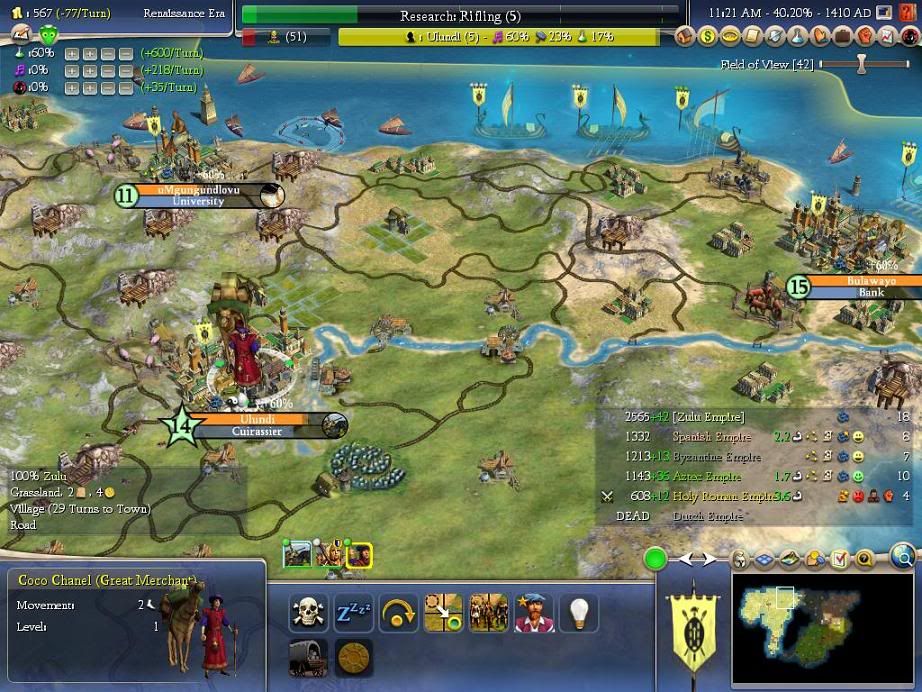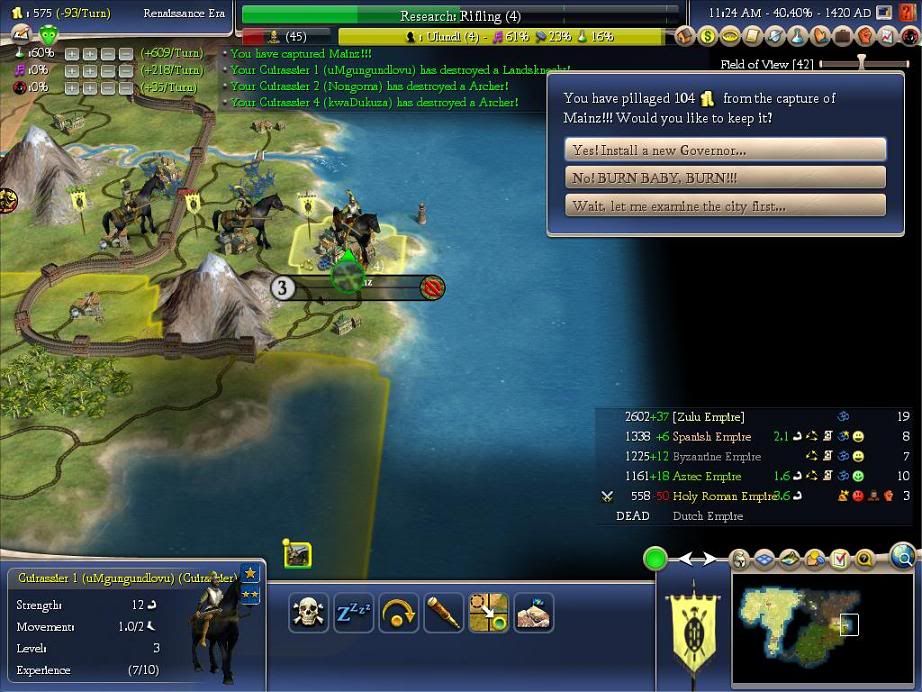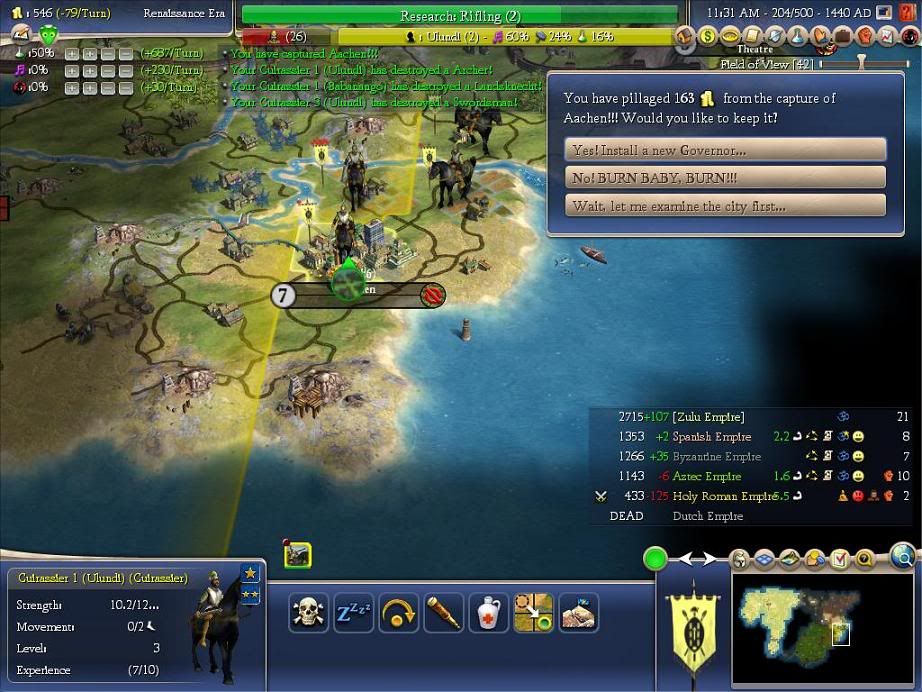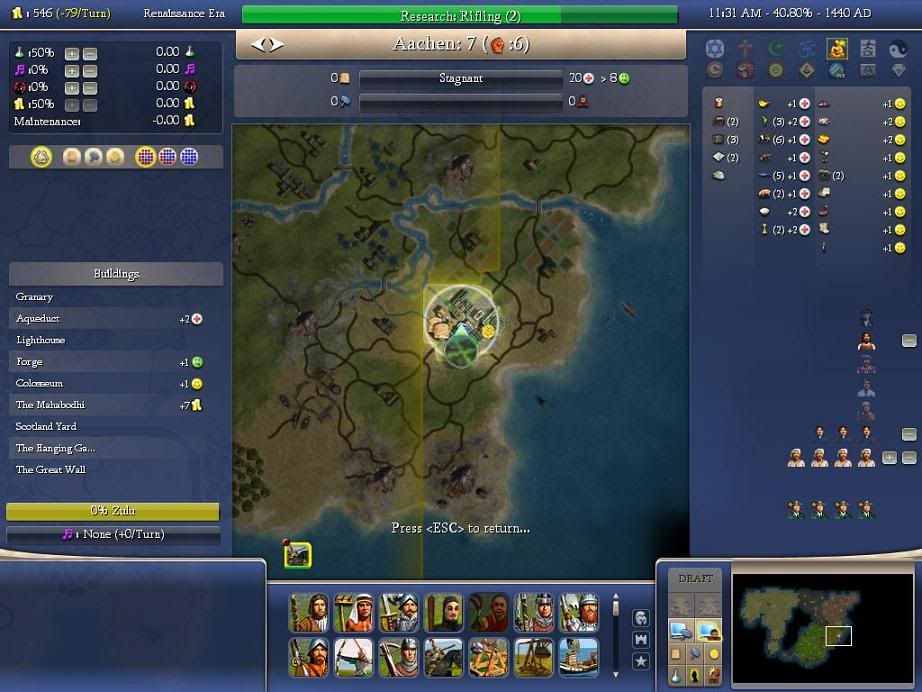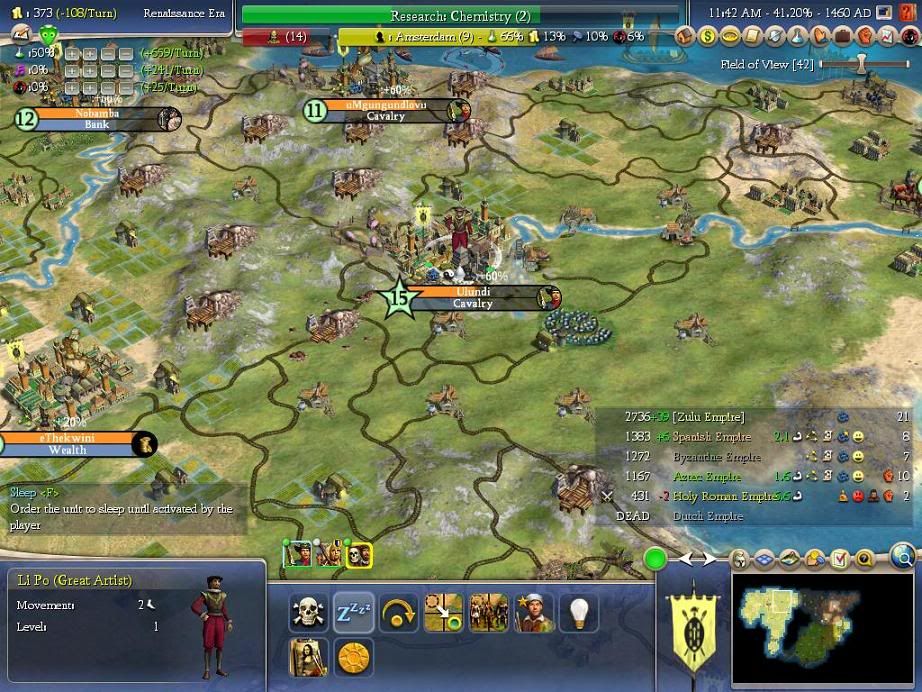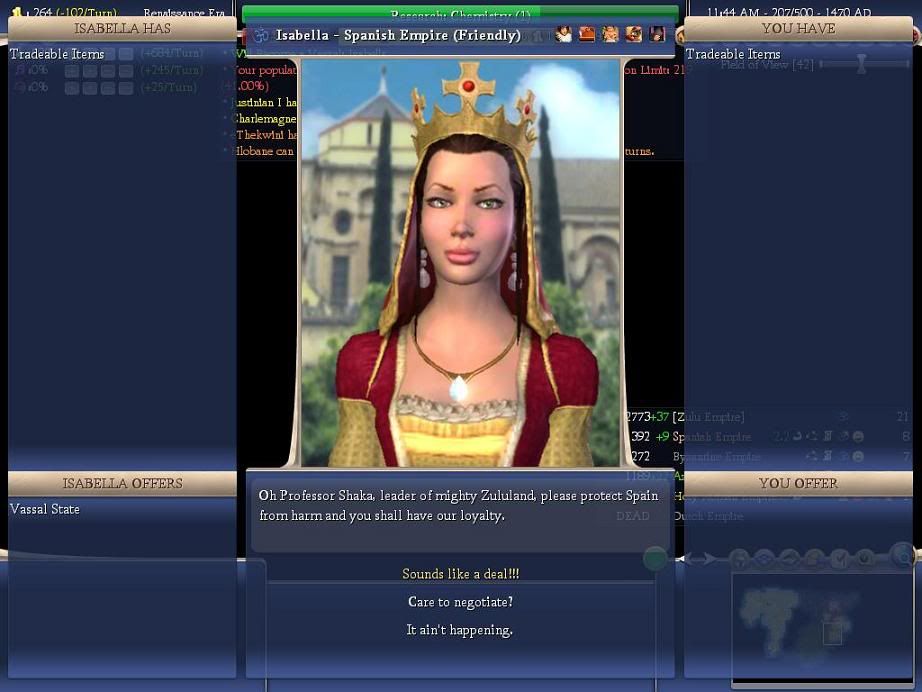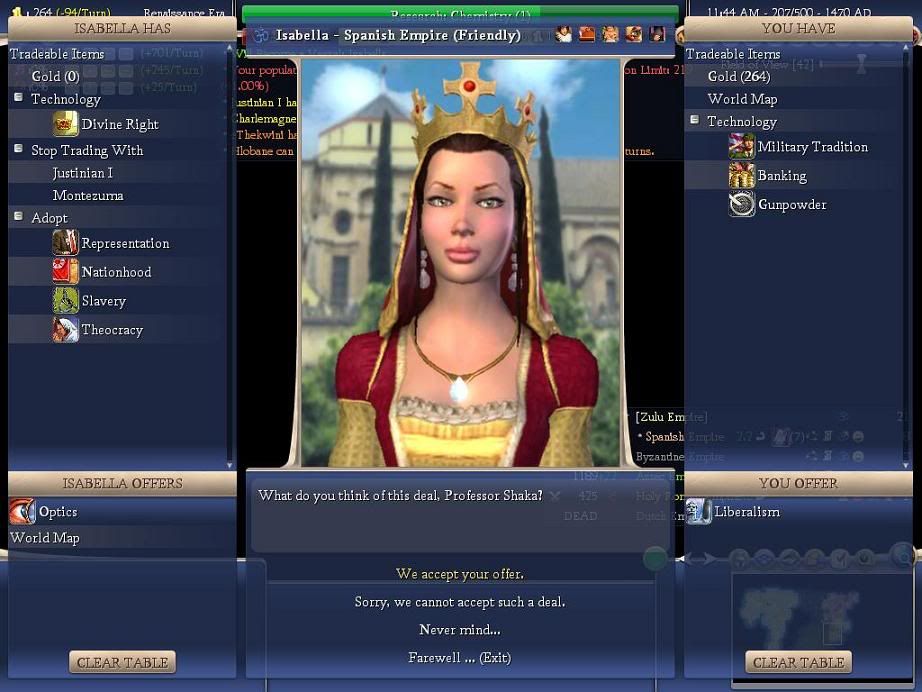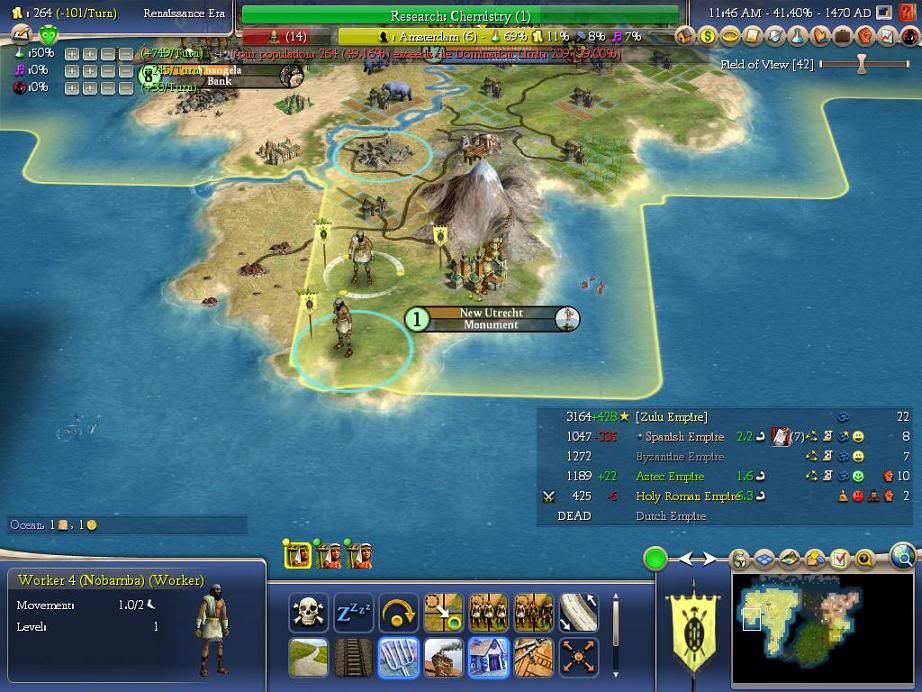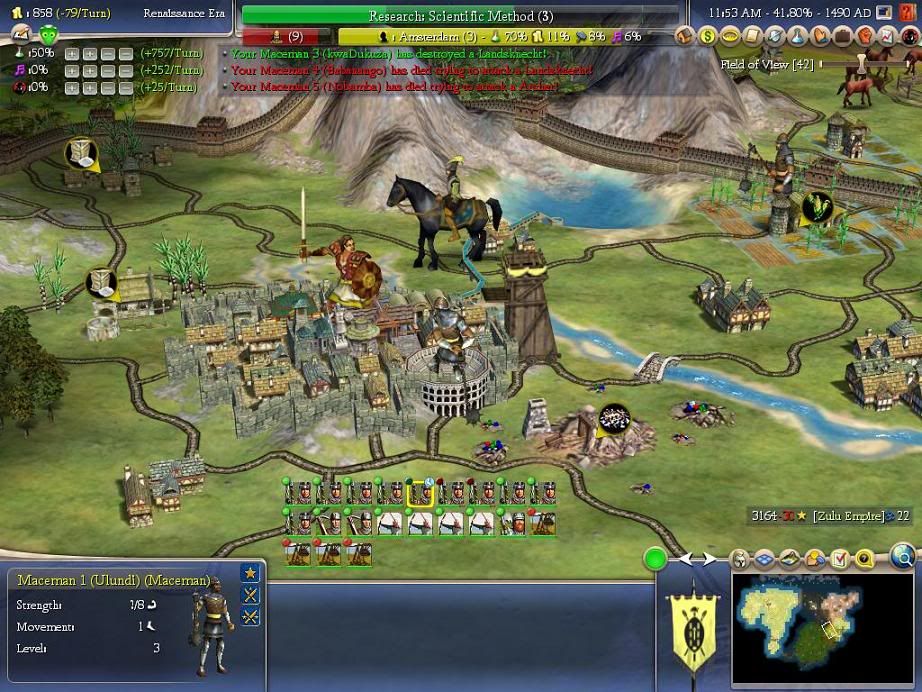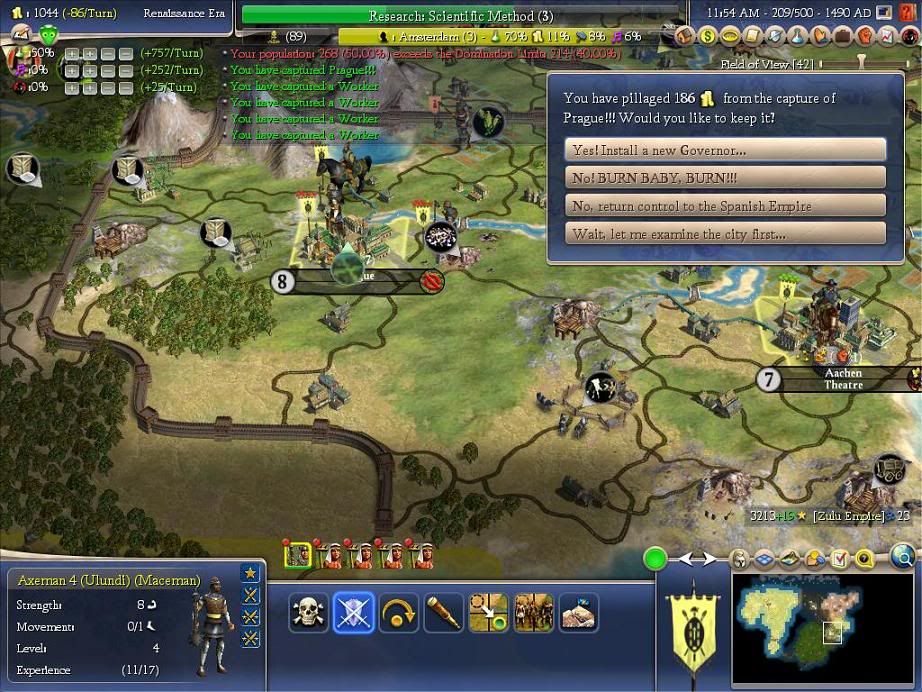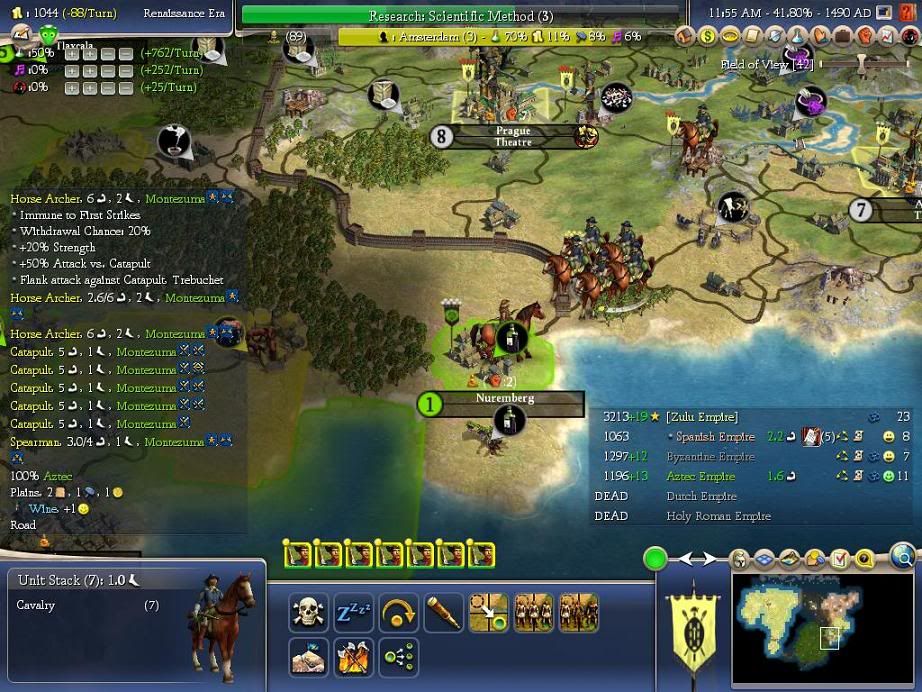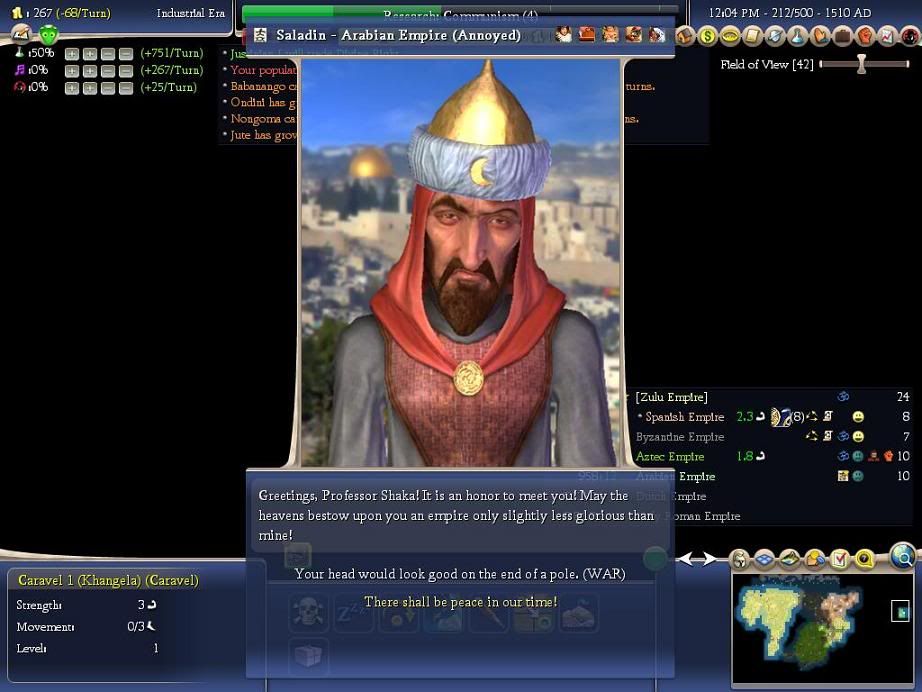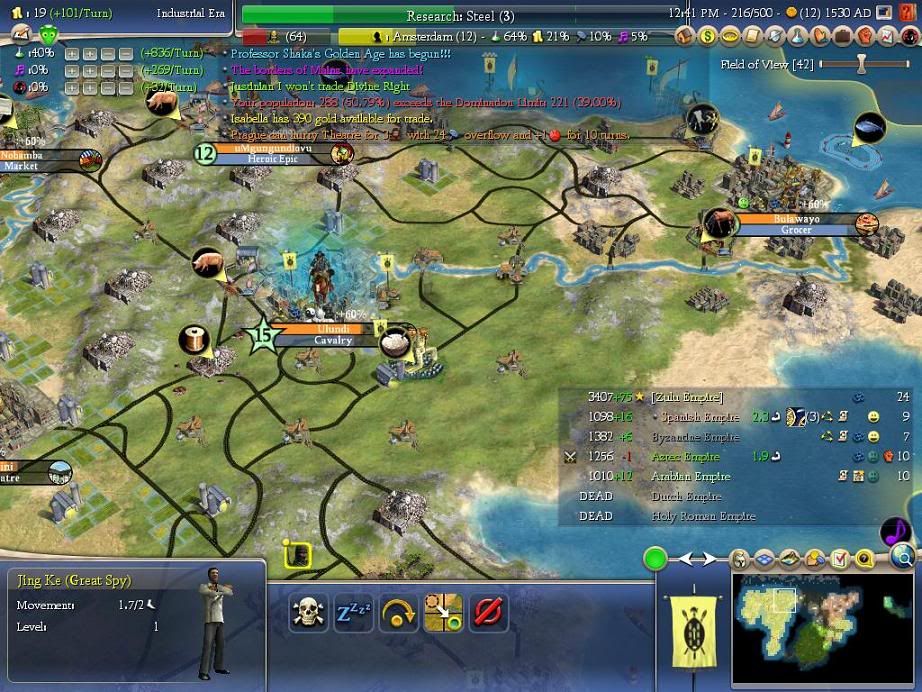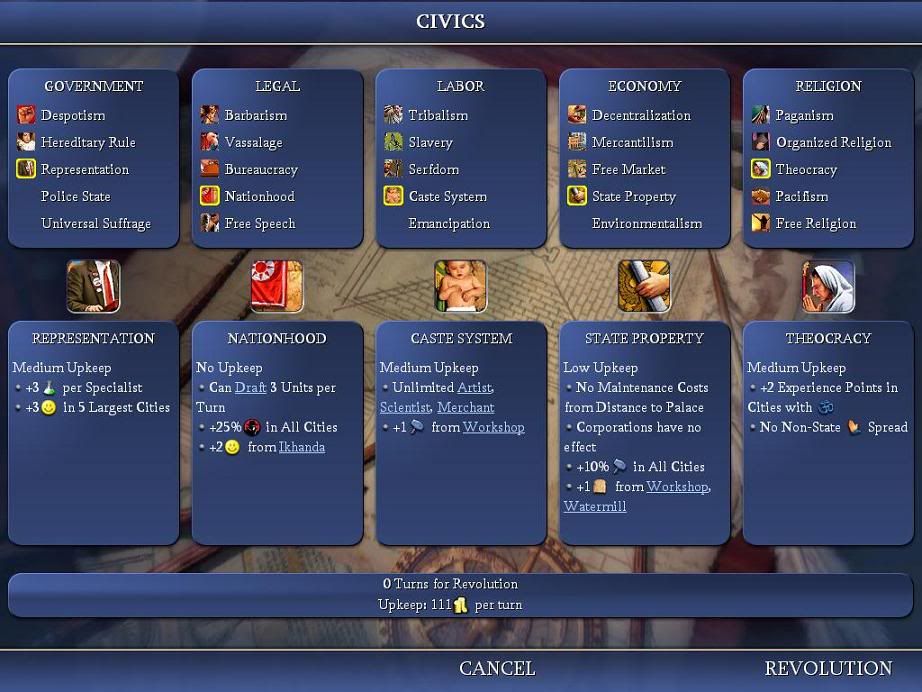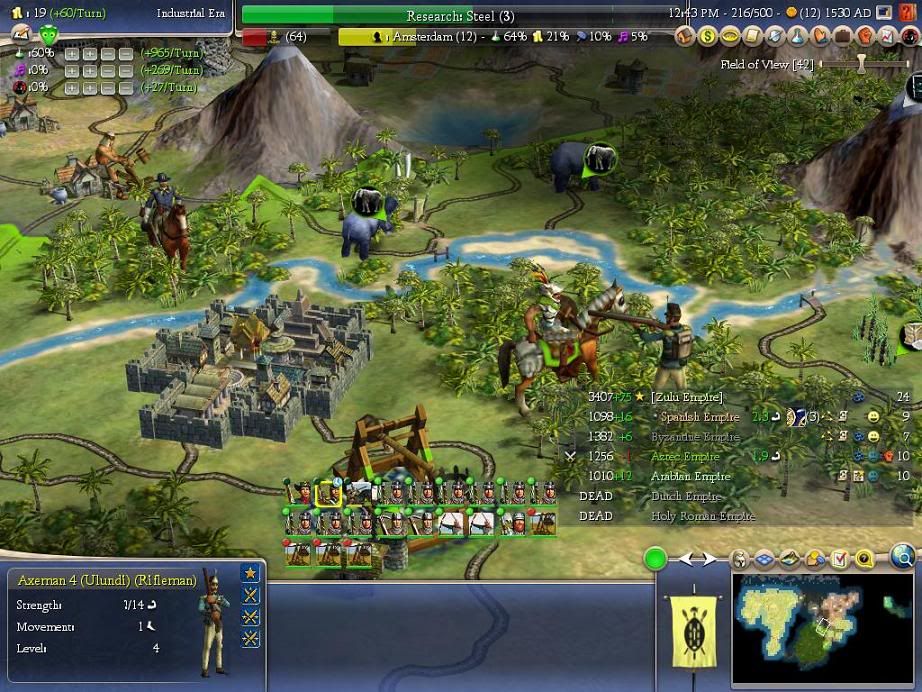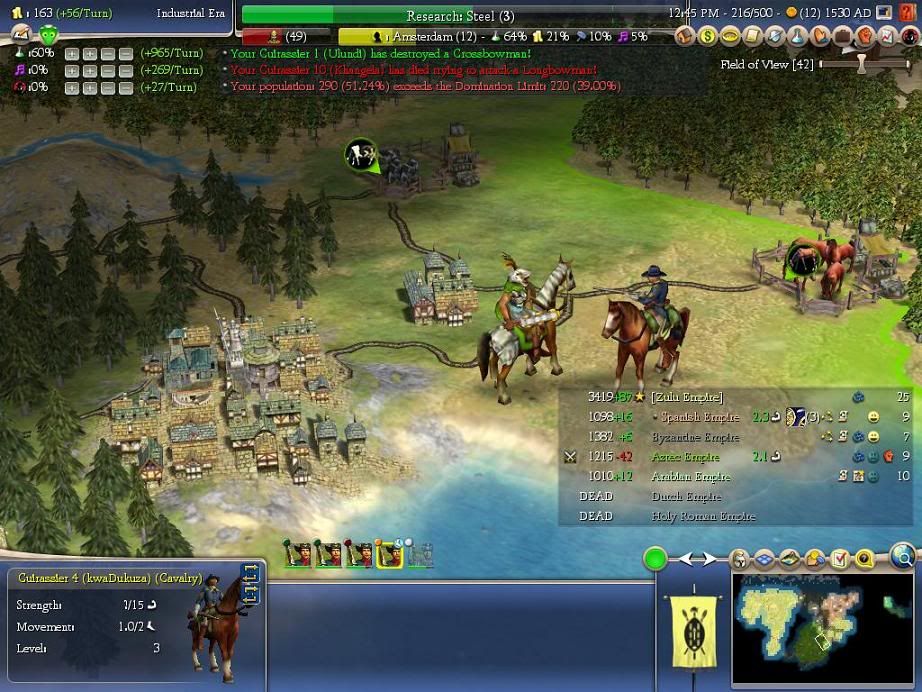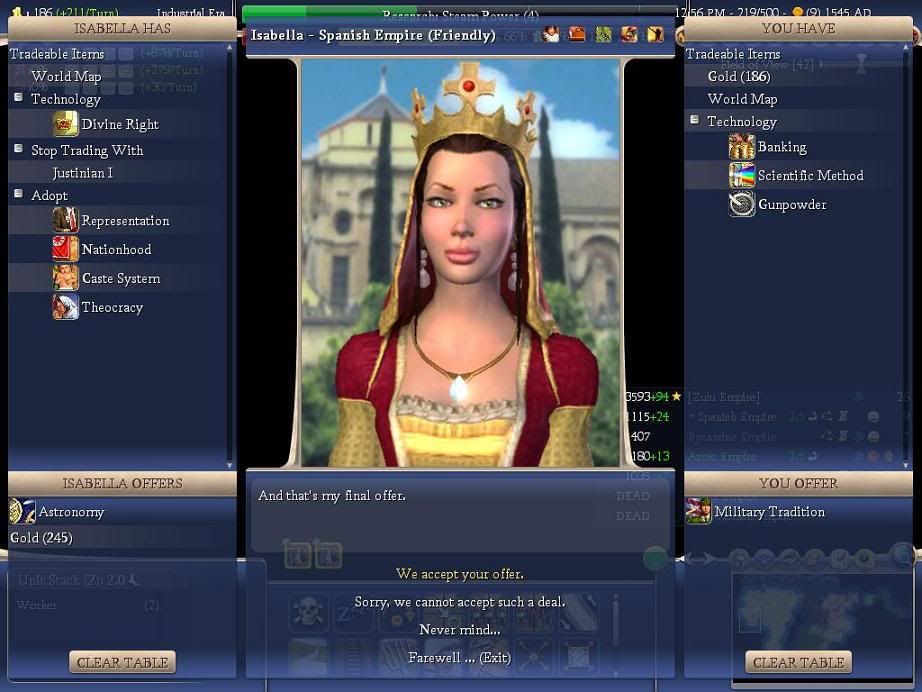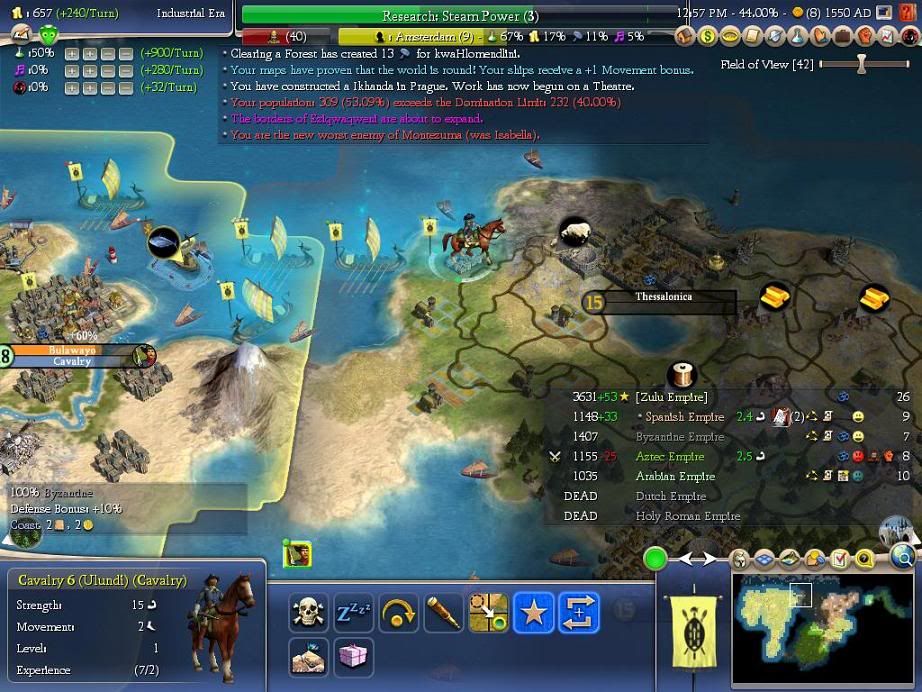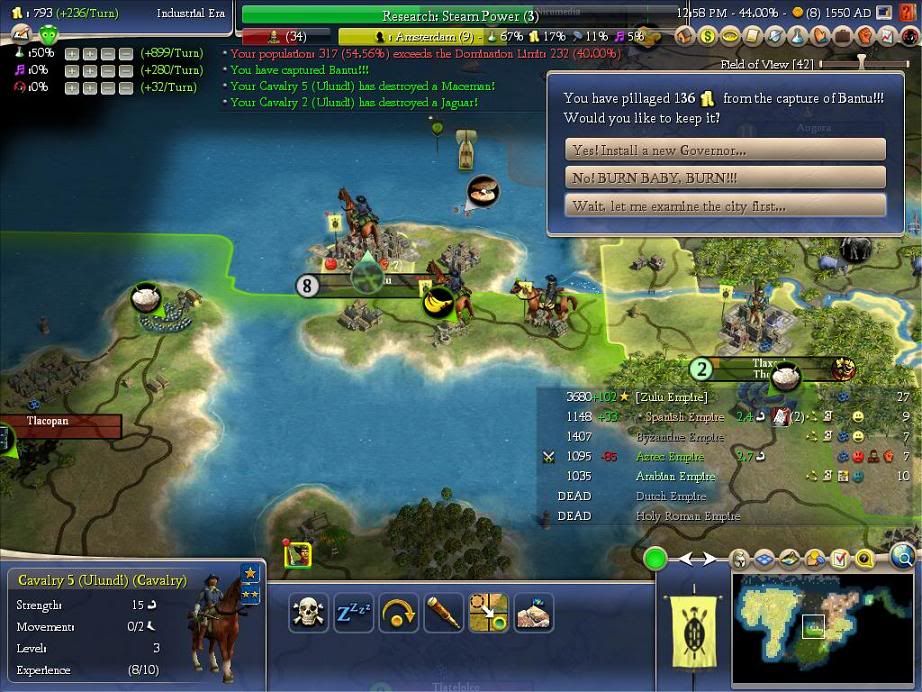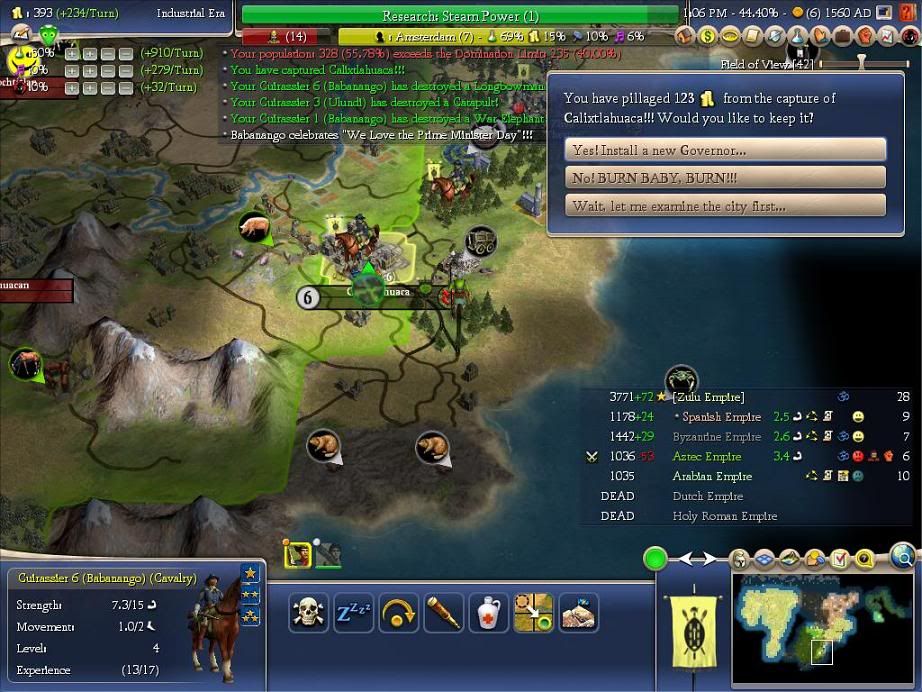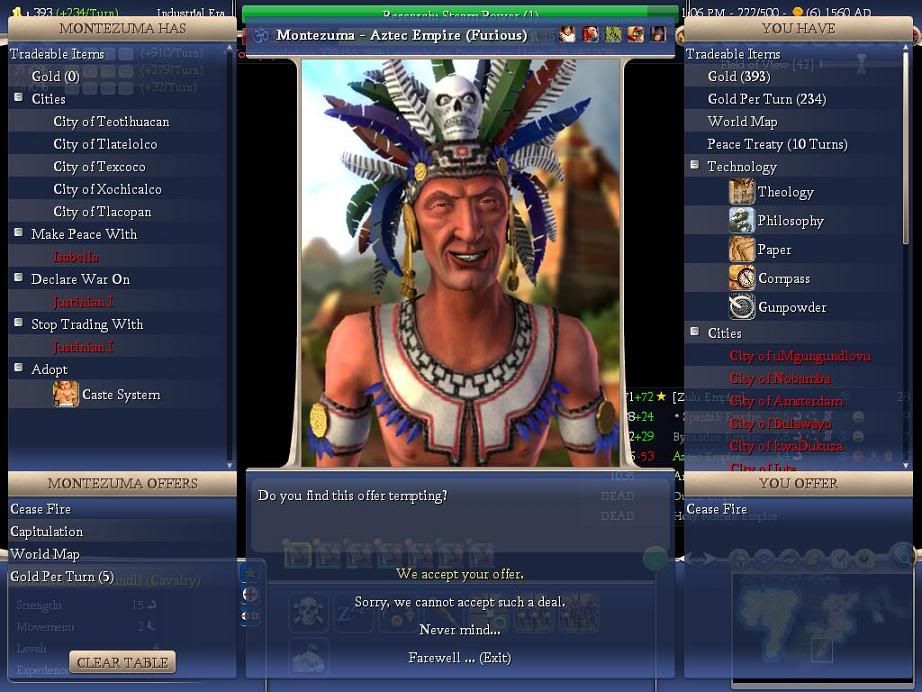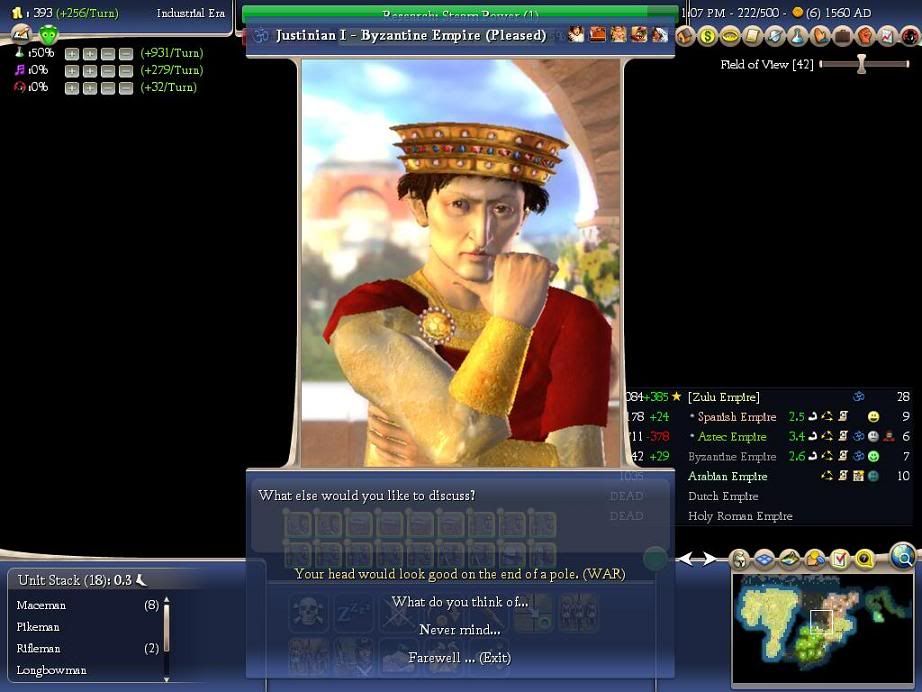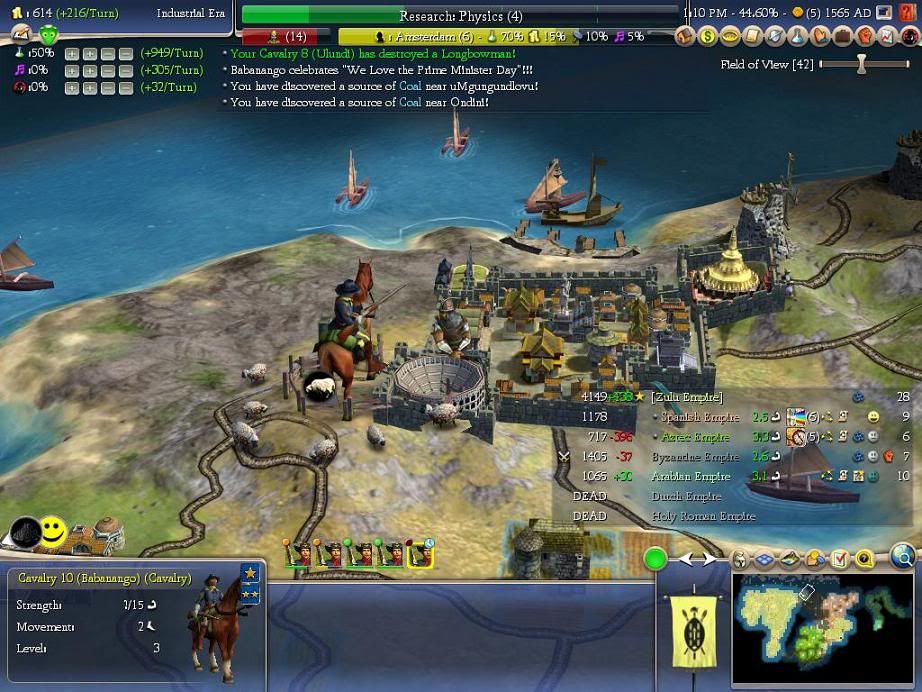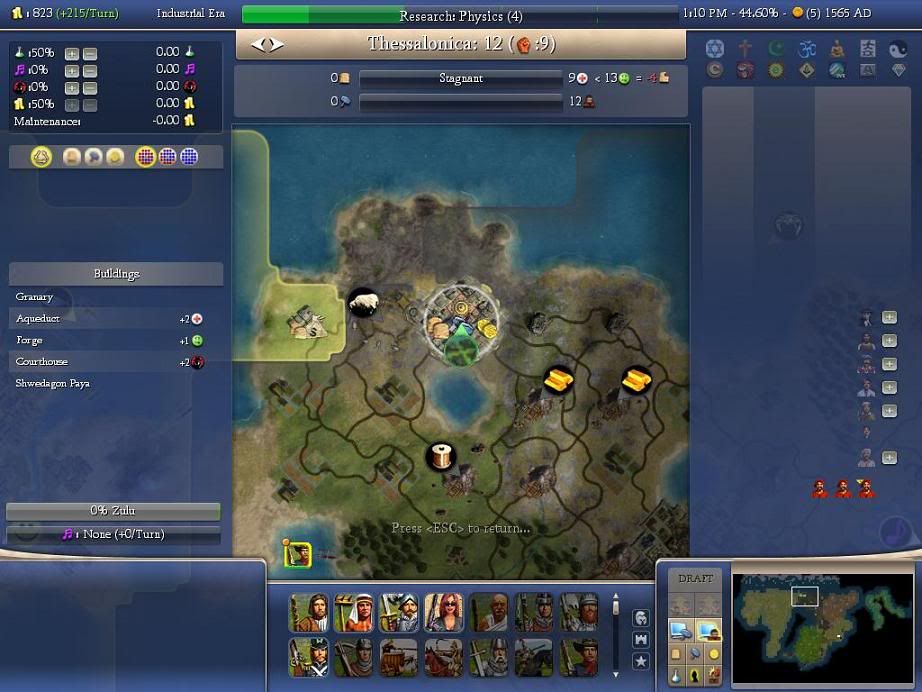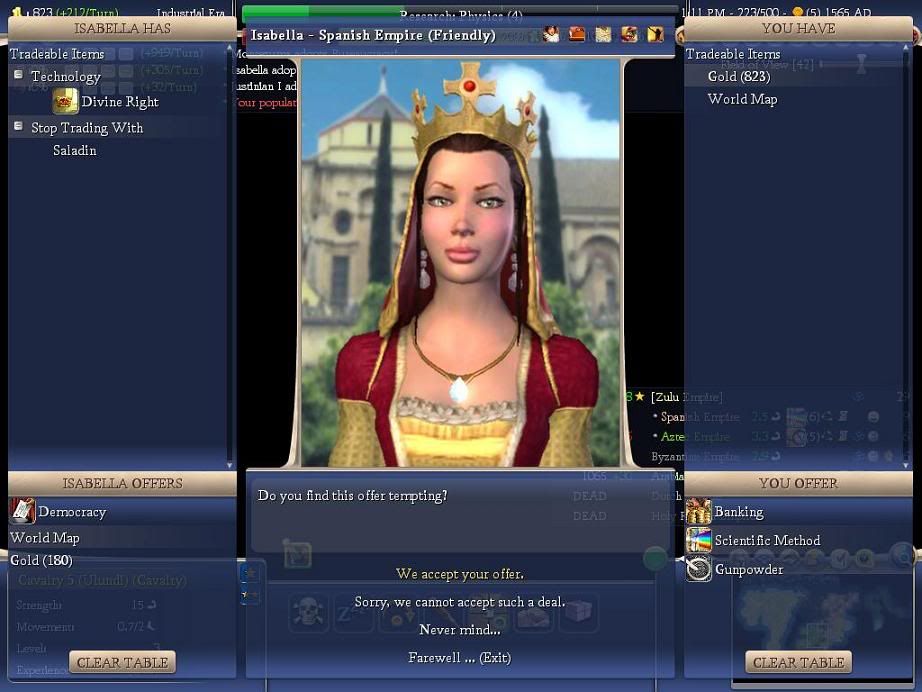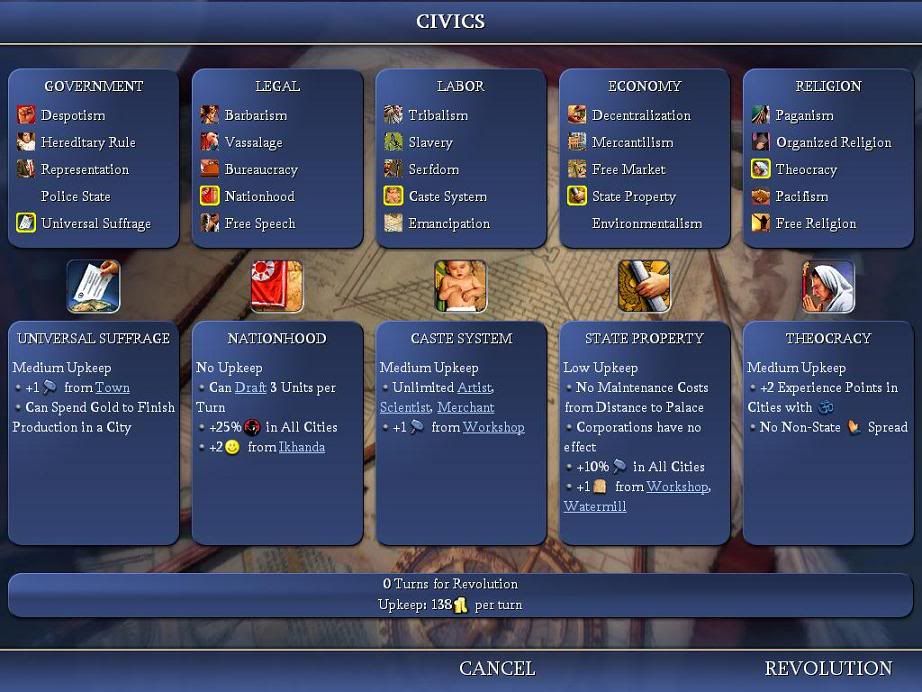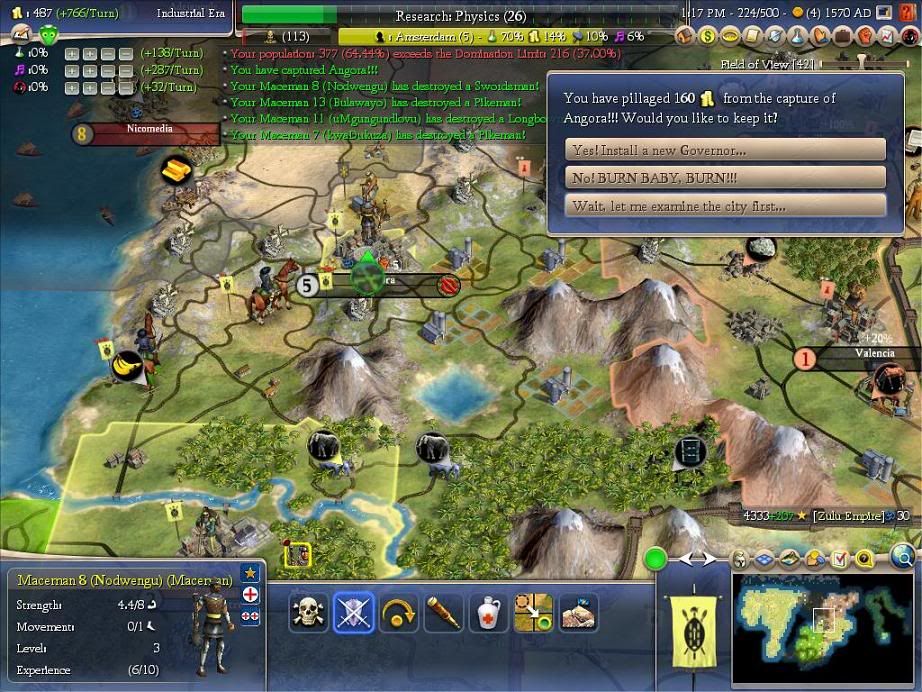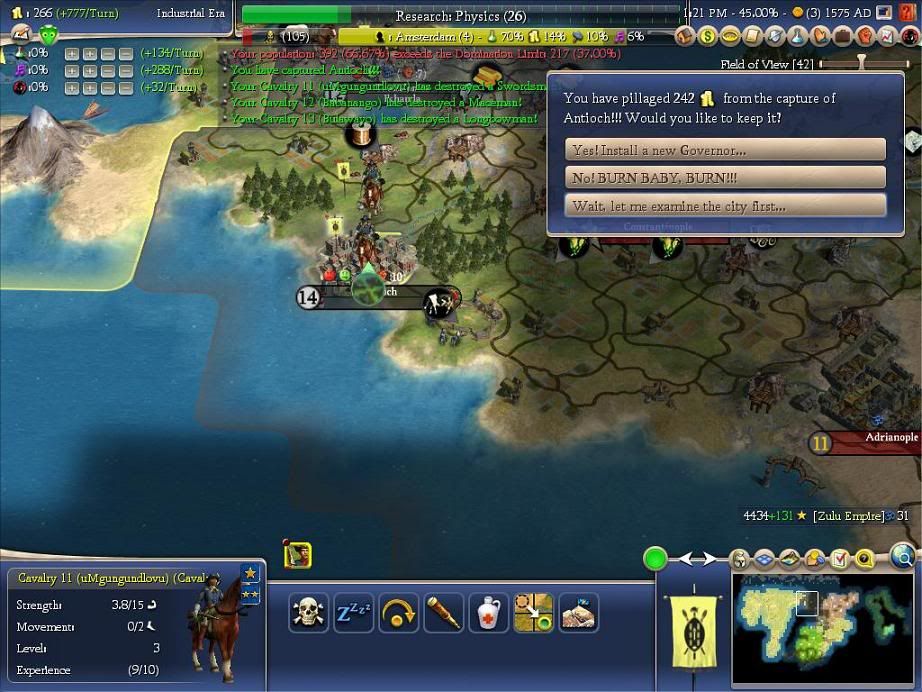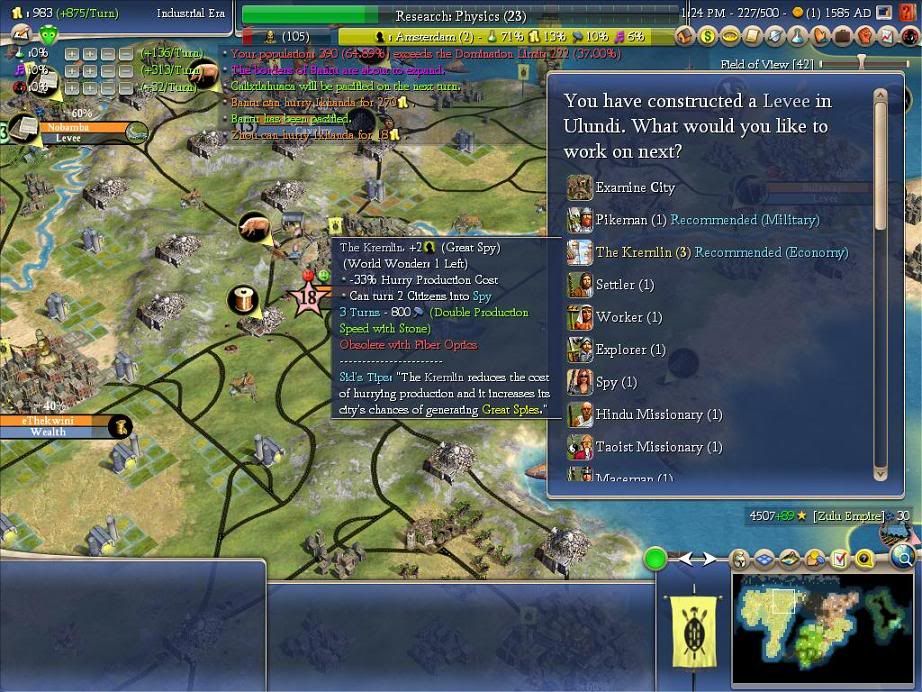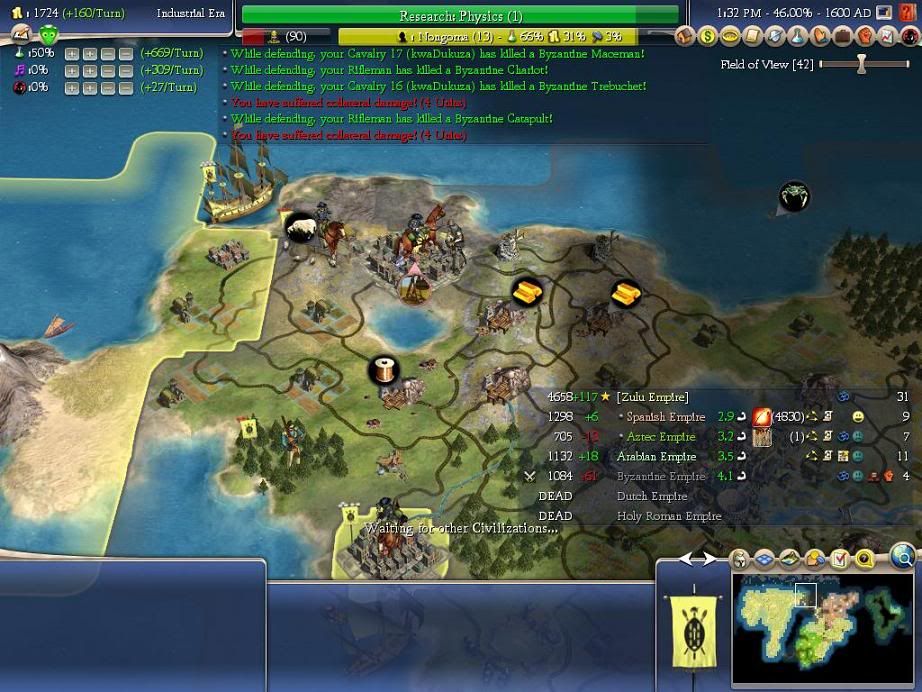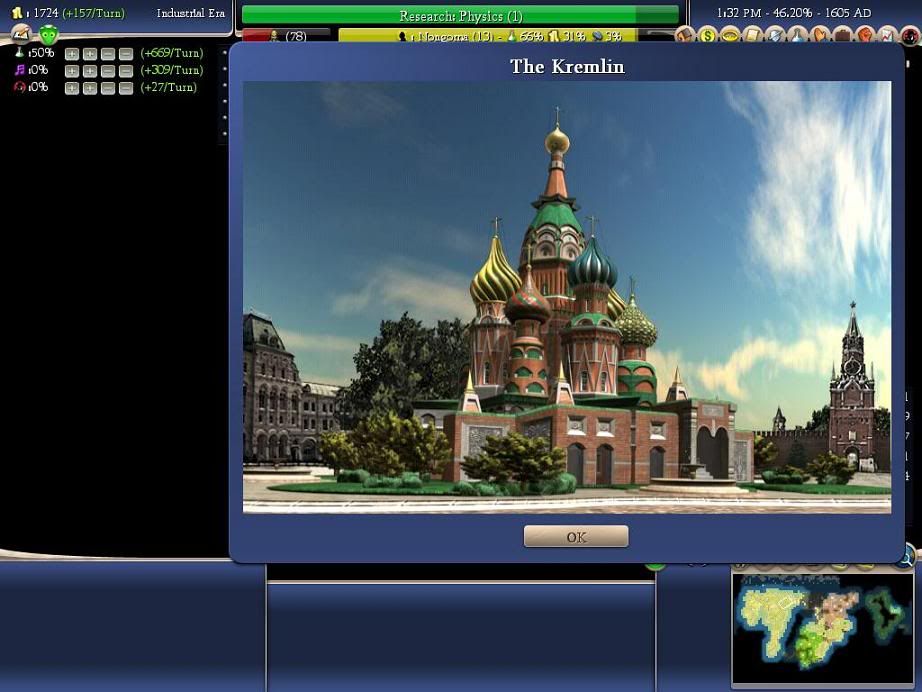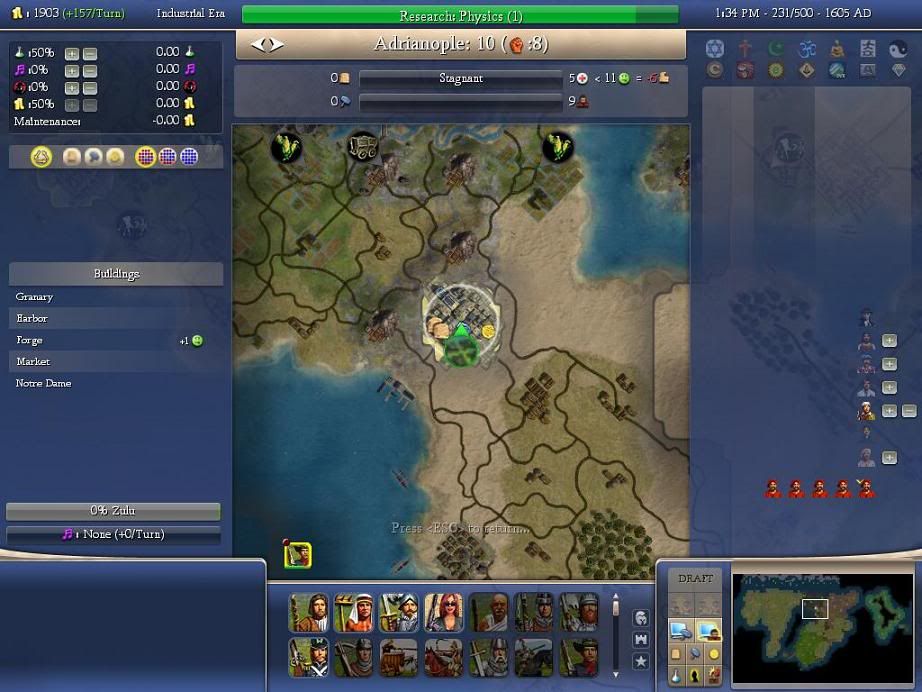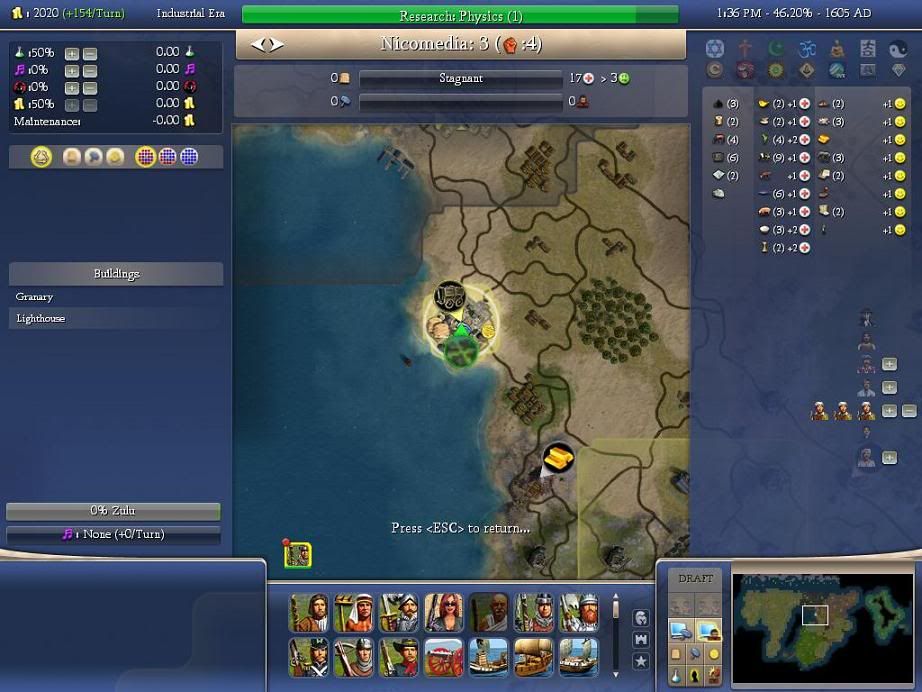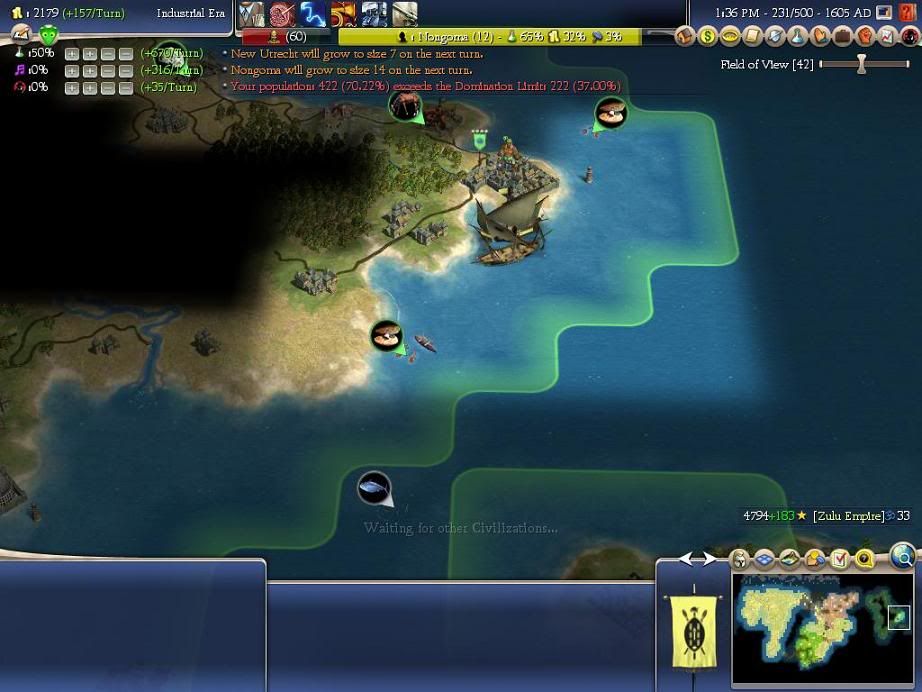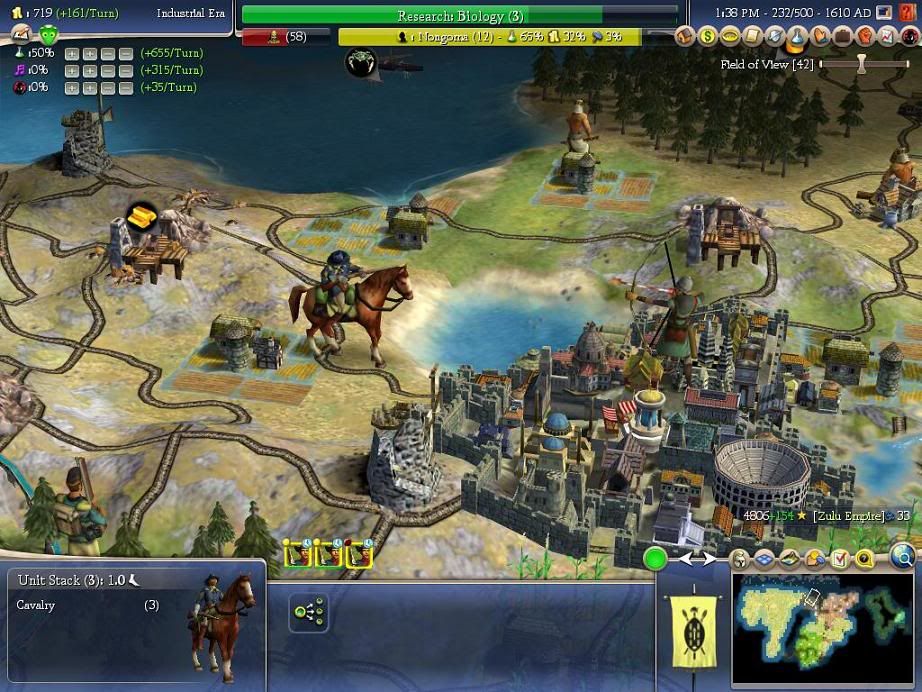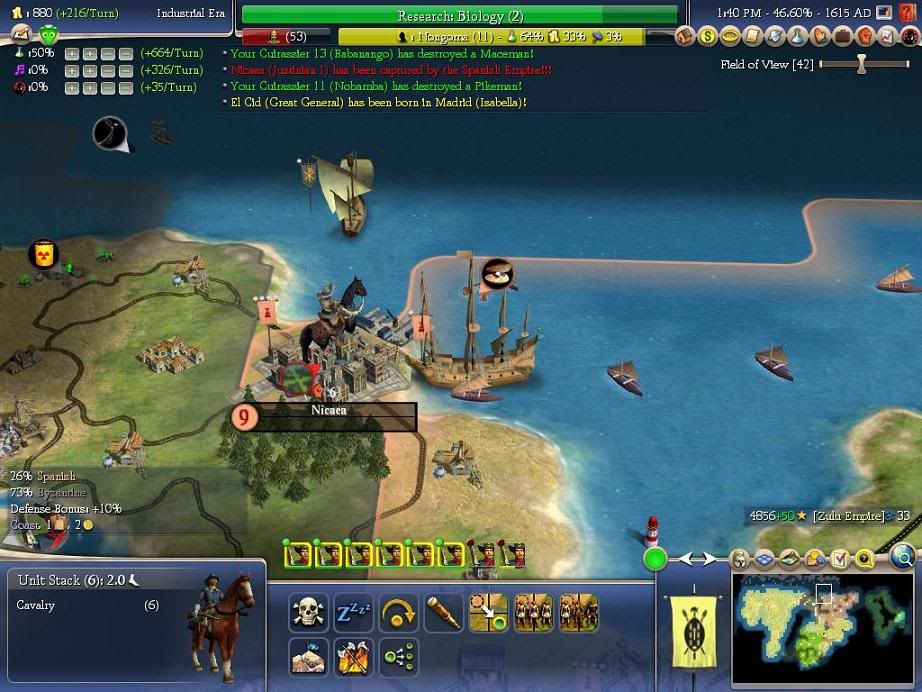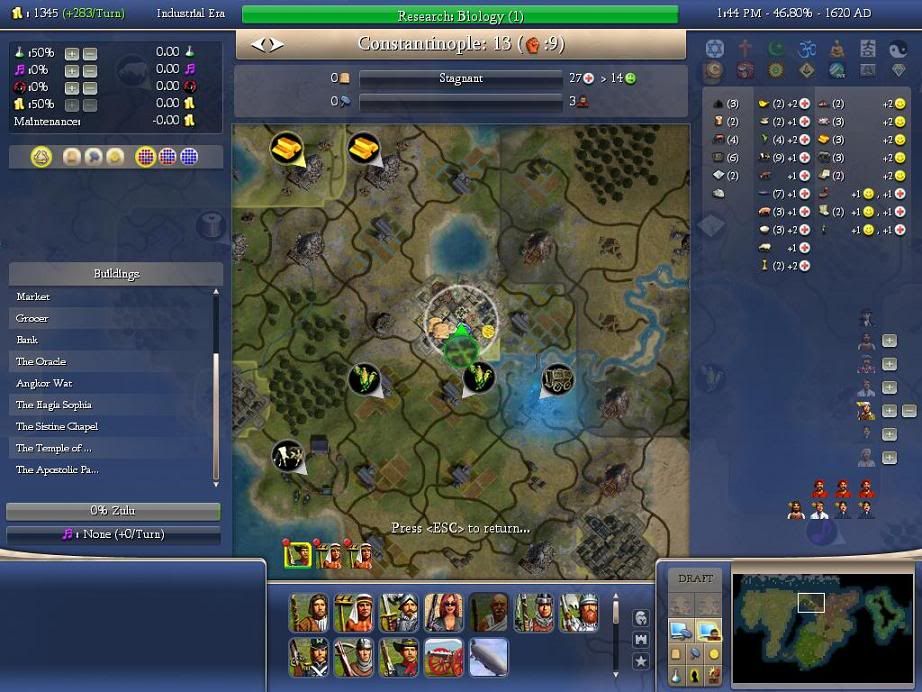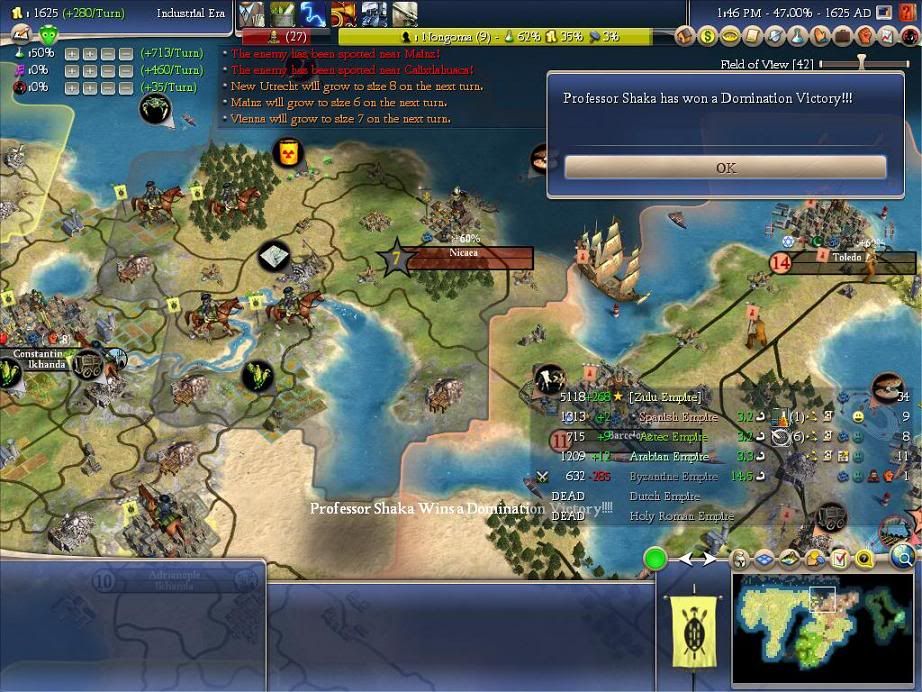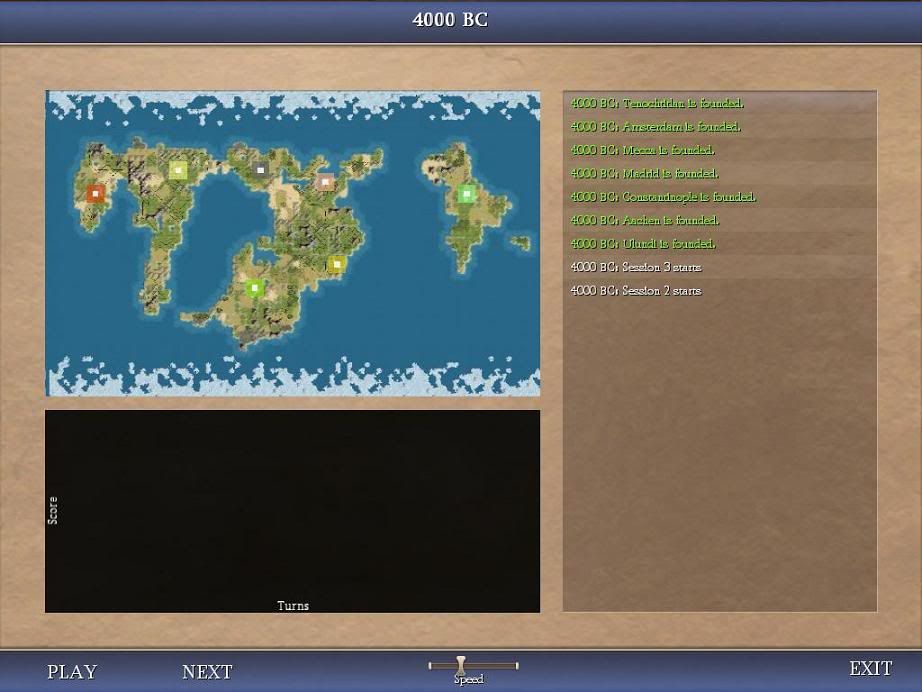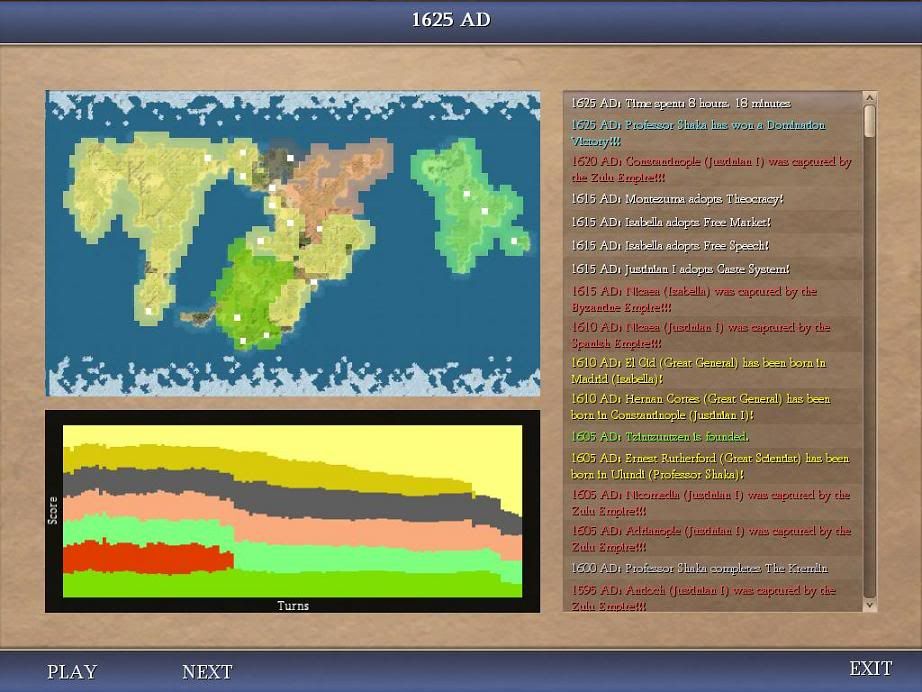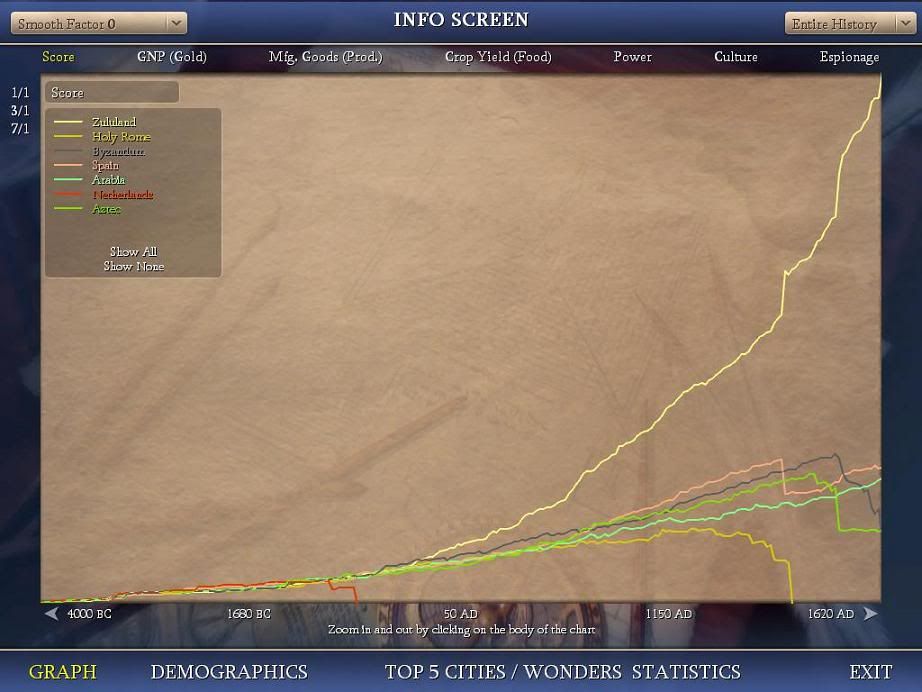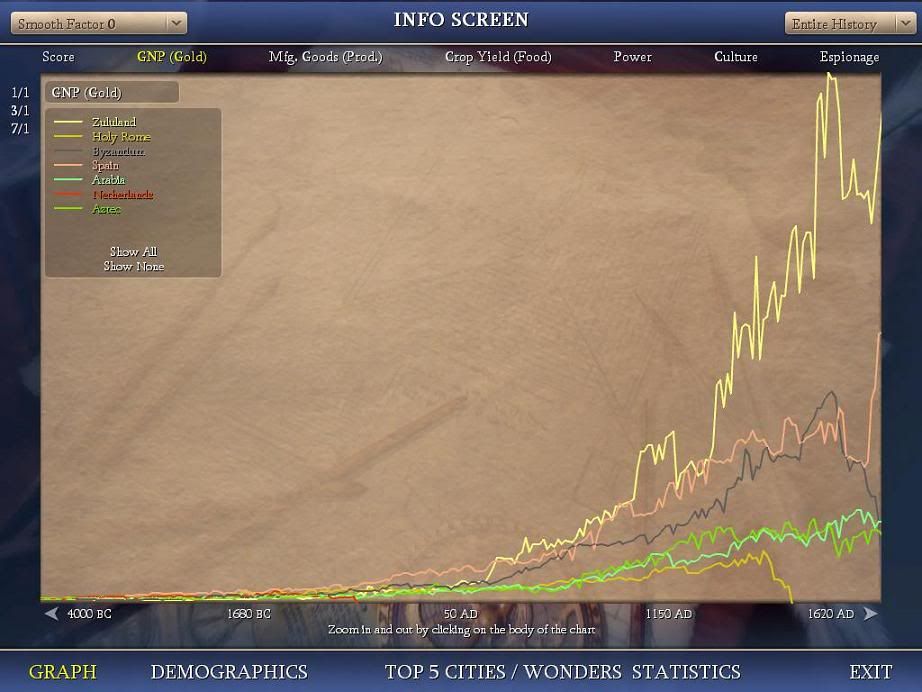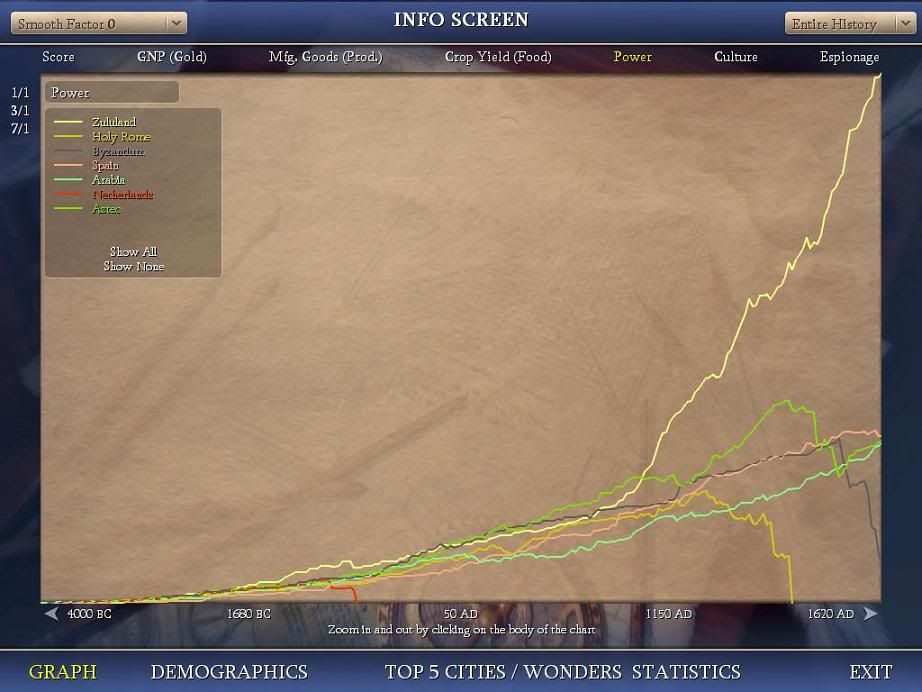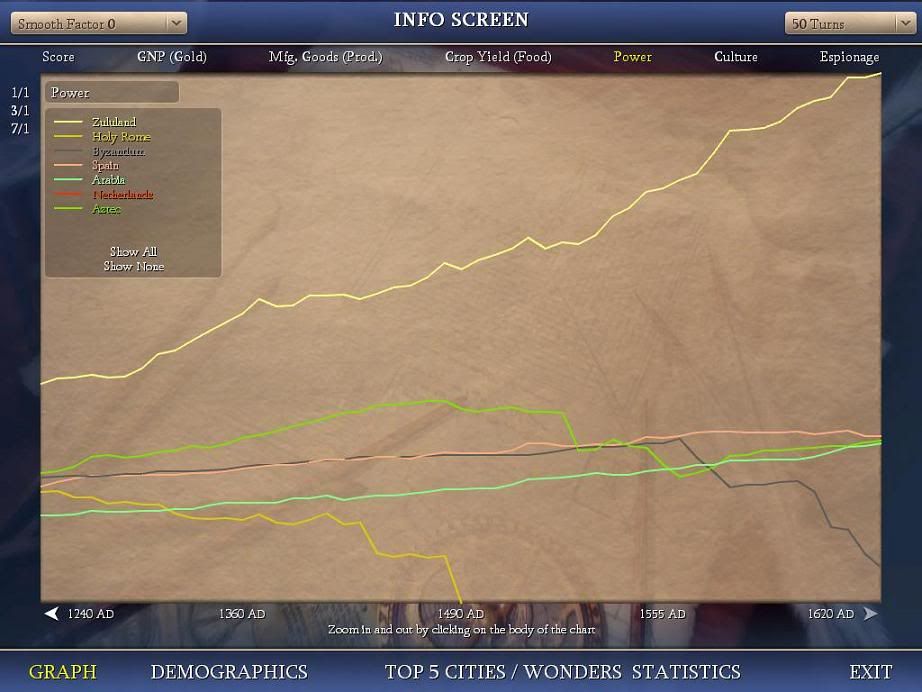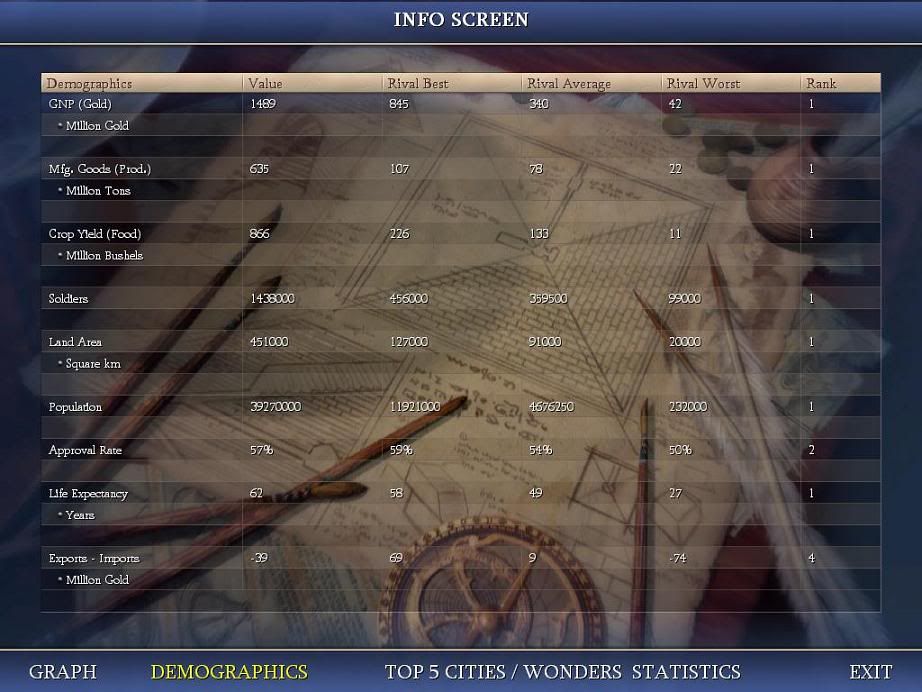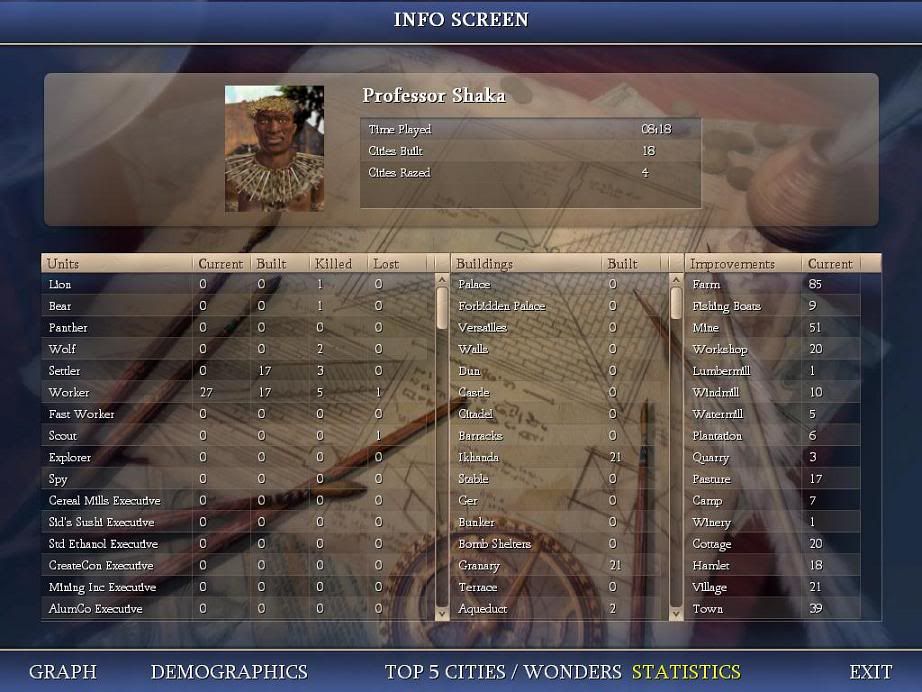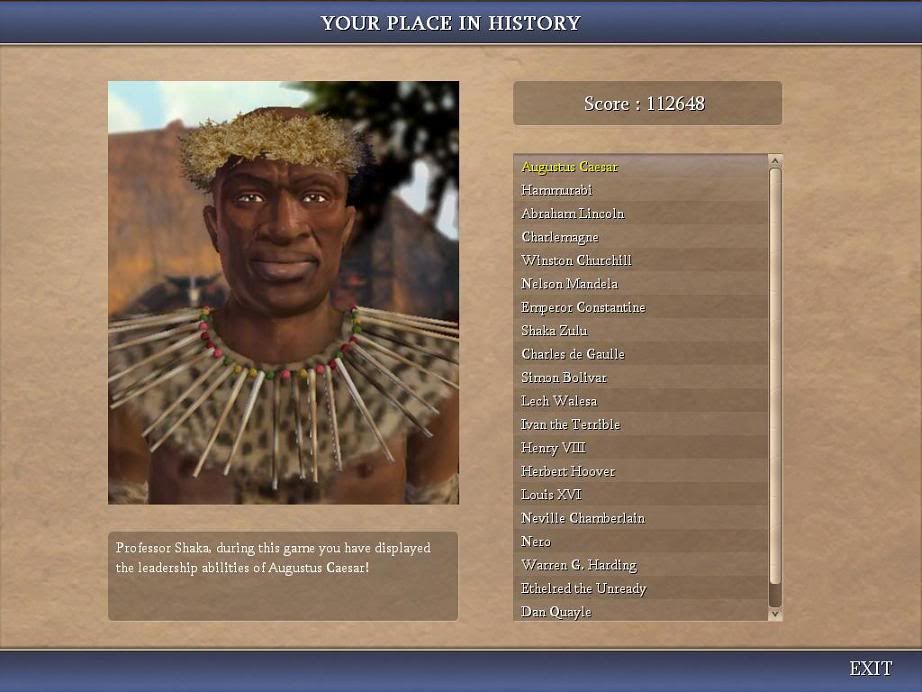Chapter 6
The Drums
The most difficult part of Shaka's immortality was that he could always hear the drums.
Centuries ago, the Zulu war-drums had hammered ominous rhythms as the tribe's Impis thundered from the mountains to bring war to the Dutch. Even now, he could still hear his people chant in his mind.
War. War. War. War.
That was generations ago. The Zulu reputation had softened in that time. In his elaborate throne room, Shaka sat amidst the smell of fresh spices, dressed in his finest silk robes. Outside of his palace window, he could see the distant Mausoleum rising above the western hill, arrayed in the finest marble. He had it all. His was the greatest nation in the world; even the residents of the Holy Lands of the East envied him.
And yet he could not stop hearing the drums.
War. War. War. War.
Charlemagne was weak. The Holy Romans were a backwards people. The Zulu had the technology to forge an army that would make the world tremble. Shaka had but to act.
But the spices. The furs. The silks.
War. War. War. War.
"Um... sire?"
The war-chief woke from his trance to find a messenger--a page with bowl-cut hair from uMgungundlovu to the north. Shaka tried to focus and listen, but he still heard the drums.
"Sire... the University of Sankore is--"
"UNIVERSITY!?" Shaka roared. He remembered this character Sankore. He promised a continued age of Zulu enlightenment, where educational facilities would be established in Hindu temples across the land. The project would require an extensive Temple-building campaign.
Shaka snorted. Breathed.
War. War. War. War.
Zulu craftsmanship would be wasted on these Temples. It was time. Religious enlightenment could wait until the drums were silent again.
"Have Sankore sent to work with the scholars of the Netherlands if he wishes to seek enlightenment," Shaka growled. "uMgungundlovu will have no such building. Your fishermen will build boats. If we cannot cross the Holy Mountain by foot, we will find our own way into the Holy Land."
"B-b-but sire!" the messenger stammered. "Do you mean--"
"War," Shaka said. "War. War. War. War."
And the chief wandered off to meet with his advisers, chanting all the while.
But all did not begin with war. While the North began crafting the Galleys necessary to ferry troops to the Holy Lands, in the West, Shaka accepted his advisers' wisdom and adjusted his build orders:
He also negotiated a trade with the Spanish queen, who seemed... let's say "excited" about the deal.
Seeing that maintenance costs still dragged his research desires, Shaka opted not to settle the distant South. Instead, he settled the city of eThekwini within his existent borders:
(It's not quite ready yet--I still need to get a missionary over there to bring in the faith--but I built this one to whip into oblivion and as a possible Globe Theater drafting city.)
In the Netherlands, meanwhile, a charismatic warrior-mathematician named Nabu-rimanni created a hysteria with his enumeration of the distant cosmos. He rose to power as an adviser to the local lords before finally being brought before Shaka's court in 1060.
Nabu-rimanni's teachings were combined with Shaka's philosophies to teach that it was Zululand--not merely the earth--that lay at the center of the universe. The newfound nationalistic fervor sparked a Golden Age.
All was going according to Shaka's plan.
The mania spreading across the lands allowed Shaka to slip in several changes to his government.
The newly crowned King Shaka--accompanied by his cadre of war-eaucrats--transformed Ulundi from an opulent city of wonders to the production center of the Zulu Empire. Zulu warrior-artisans crafted strong Maces and menacing Trebuchets in the capital, shuttling them off in Galleys built in uMgungundlovu and Bulawayo.
With the secrets of Engineering unearthed and Zulu carriages now the envy of the world, Shaka turned his attention to applying his people's sciences to the theater of war:
(Per advice, I went for the Cuirassier beeline. We made a brief stop at Printing Press to beef up our towns, but that also helped us get close to Rifling.)
Shaka had considered--perhaps foolishly--seeking to rule the world via diplomatic means. However, his people enjoyed a significant technological advantage over Charlemagne. And Justinian. And Isabella. And Montezuma.
War. War. War. War.
Shaka breathed deeply and shook his head.
In 1070, Chuck's crown must have been weighing too heavy on his brain, because he decided that what his people really needed was to wage war against the world's mightiest army.
Montezuma had "enough on his hands" for decades, but the Aztec war machinery turned too slowly. Charlemagne took the initiative. War had come to the Holy Land.
Shaka sought intelligence on his future opponents:
And his Galleys began to fill:
Early in the next century, Justinian conceived of a new government for the known world, one bound by the Hindu faith. It was a play for power, Shaka knew; the Byzantines and Spanish could not hope to match the breadth and might of Zululand, but they could bully their way to the front through bureaucratic means. Indeed, Isabella--whose shamans had founded the faith millennia ago--threw in with the Byzantine king. However, even their combined numbers could not match the fervor and size of the Zulu population.
Montezuma's support was nice, but it was hardly necessary. Shaka himself sat in residency at the Apostolic Palace as overseer of the faith, and no one could hope to challenge him.
Nicolaus Copernicus, a student of Nabu-rimanni, rose in Amsterdam, where he invented the Printing Press.
And at the end of the Golden Age, Shaka implemented one final civic change:
Infrastructure still needed to be built throughout the empire. While Amsterdam would suffer as its scientists were forced back into the mines, a period of Slavery could help that city build the necessary infrastructure to allow even more specialists to work there.
With Nationalism researched, Shaka sought deals with Justinian...
...and Isabella.
The secrets of Music and Feudalism were what Shaka truly sought. Isabella's music could be put to work in Ikhandas throughout the land, turning them from rude barracks into hard-nosed military institutions.
A decade later, Montezuma himself came to call.
The Zulu military wasn't quite complete, but it was certainly up to the task.
(No, that's not all the siege! Yes, the future garrisons weren't far behind! I felt pretty good about this force, though. Chuck couldn't build longbows yet. Chuck could even research Feudalism yet! By the end of the round? HE STILL CAN'T. I should've done this eons ago!)
Traditionalists in Byzantium were shocked to see the Zulu king daring to use his boats to go around the Holy Mountain. However, there was nothing they could do. Shaka the Pope-King simply declared that a study of the scriptures had revealed that the blessed Zulu people were indeed allowed to make such a crossing. There was little Justinian could do to stop the Zulu army from descending on his old friend Justinian.
Isabella made a laughable offer to claw her way into the Liberalism race:
Yeah, you go ahead and have fun with your Divine Right there, sister.
Antony van Leeuwenhoek appeared, muttering something how the filthy Gauss Academy was filled with germs. Shaka was intrigued by these "germs" and sent the Great Scientist to further study them in Amsterdam.
The secret of Military Tradition finally arrived in the Zulu Empire. Throughout the land, powerful gunman atop the steeds of Bulawayo rushed to the front, eager to prove their might to their king. At the same time, the Zulu army finally arrived at the walls of Augsburg, gateway to the Holy Roman Empire. Needless to say, the city was little prepared for an army from the other side of the continent:
Shaka's generals considered a proper siege, and Zulu Trebuchets tore the walls to rubble. Before their powerful boulders could pound away at the defenders, however, the soldiers discovered that the city garrisons were not so strong as they expected:
The armies marched on the city with minimum casualties, Augsburg was burnt to the ground, and the Workers surrounding the cities were shipped back to Zululand to build roads and farms.
Seeing the production capacity of Ulundi, and noting that his people already enjoyed a military advantage over all of the people in the world, Shaka decided to allow himself a single luxury. His extravagant new palace was greater in scope and size than Justinian's pathetic Apostolic Palace, and the Zulu pope revealed that his scholars had discovered text in the scriptures that indicated that this--not Justinian's structure--was destined to be the seat of the Hindu gods.
Again, the jingoistic Zulu celebrated this slap in the face to the old guard with a Golden Age.
All the while, new troops continued to be shuttled into Byzantium for transport to the front.
(There's our supply lines at work. I'm thinking about getting some galleys on the other side of the subcontinent to put them closer to Chuck, but it's a dog's age to get down there right now.)
With Guilds and Banking providing new financial opportunities, Shaka noticed that Isabella had completed her study of Education! The Spanish queen was on the verge of taking the Zulu people's advantage right from under their noses. Shaka snorted. It would not be.
...no matter how much help she received.
The treacherous Sankore throwing in with the Spanish meant little to Shaka at this point. Selling the secrets of Literature to Montezuma financed the Zulu scientists' final push toward Liberalism, and granting them the luxury to pursue this new found extension of the old Dutch Philosophy allowed the scientists to unearth a technology that would aid the Zulu war effort:
Shaka was satisfied. Briefly.
But still he heard the drums.
War. War. War. War
The army that had crushed Augsburg had treated their wounds and were marching back to the front. The thundering of Cuirassiers marching with blinding speed to Holy Roman lands echoed through Byzantium. In their lofty palaces, Isabella and Justinian shuddered. How long until the drums would beat for them?
(State of the world to follow!)
 Instead, the good news is that most, if not all, gamers have had to grapple with these issues at one point or another when trying to progress at Civ. I was no exception and lost many games at noble until I grasped issues such as these. And I’m sure that if you learn the lessons of this game The Oz-Man, you’ll be whipping prince and higher in no time.
Instead, the good news is that most, if not all, gamers have had to grapple with these issues at one point or another when trying to progress at Civ. I was no exception and lost many games at noble until I grasped issues such as these. And I’m sure that if you learn the lessons of this game The Oz-Man, you’ll be whipping prince and higher in no time. 




